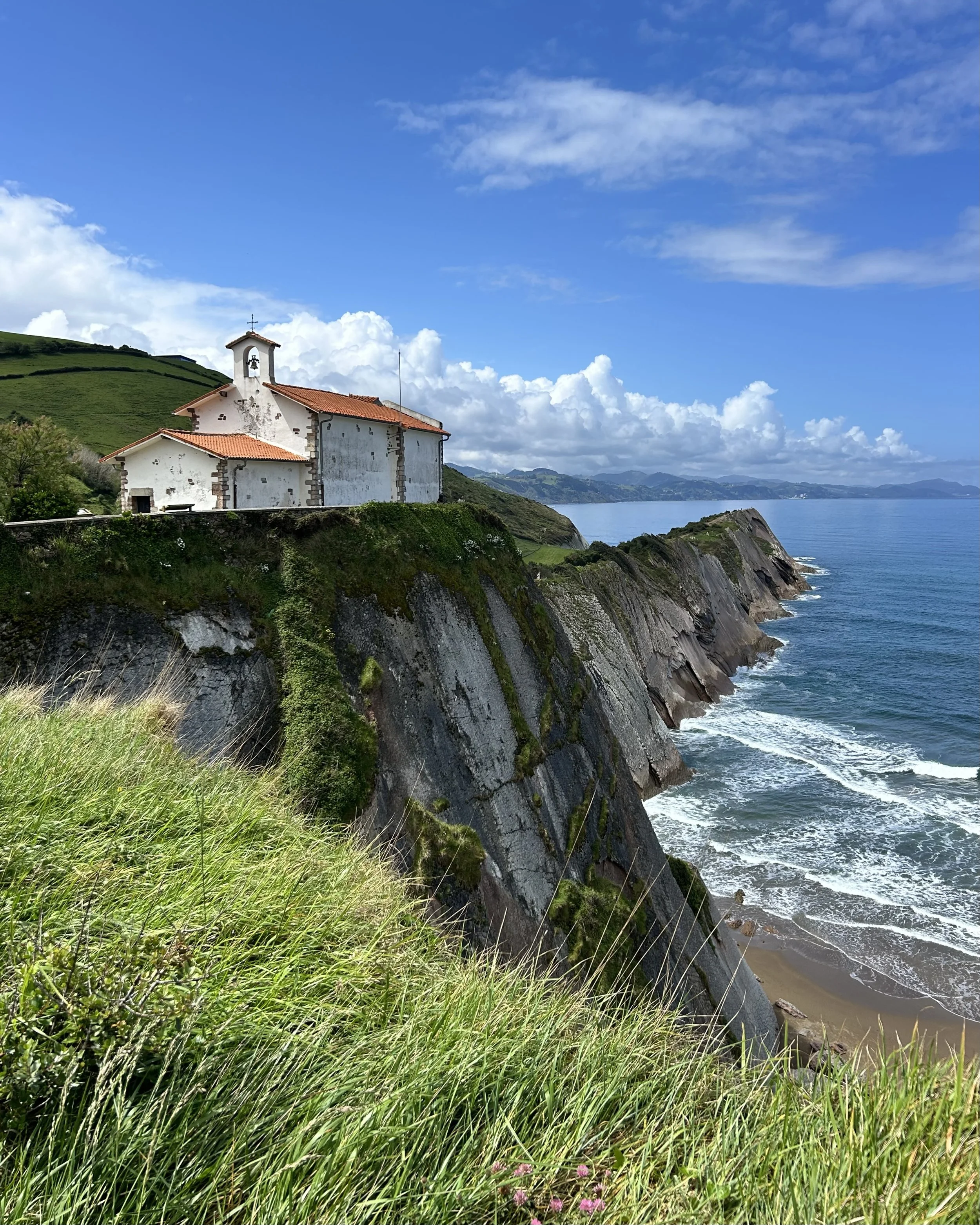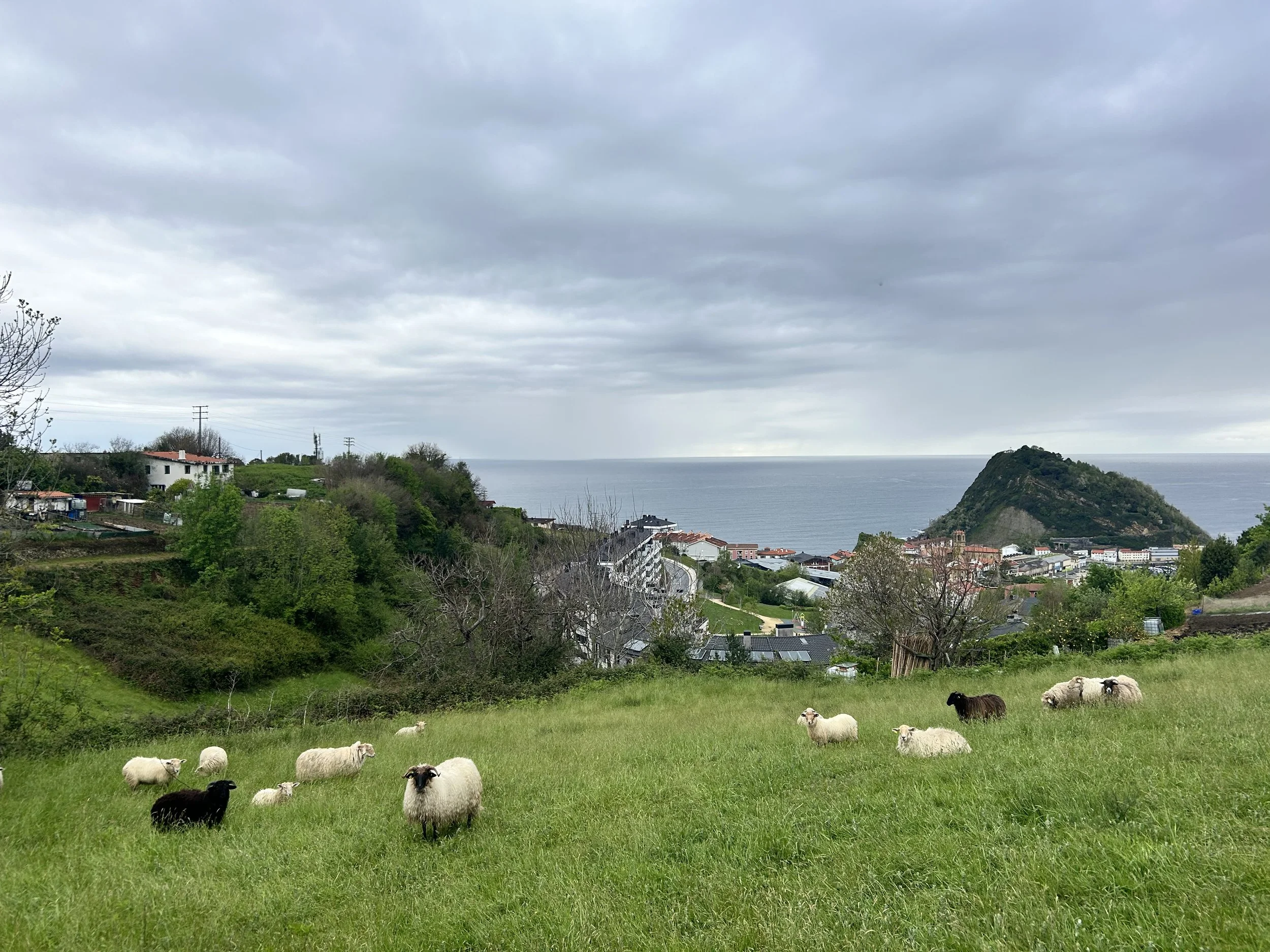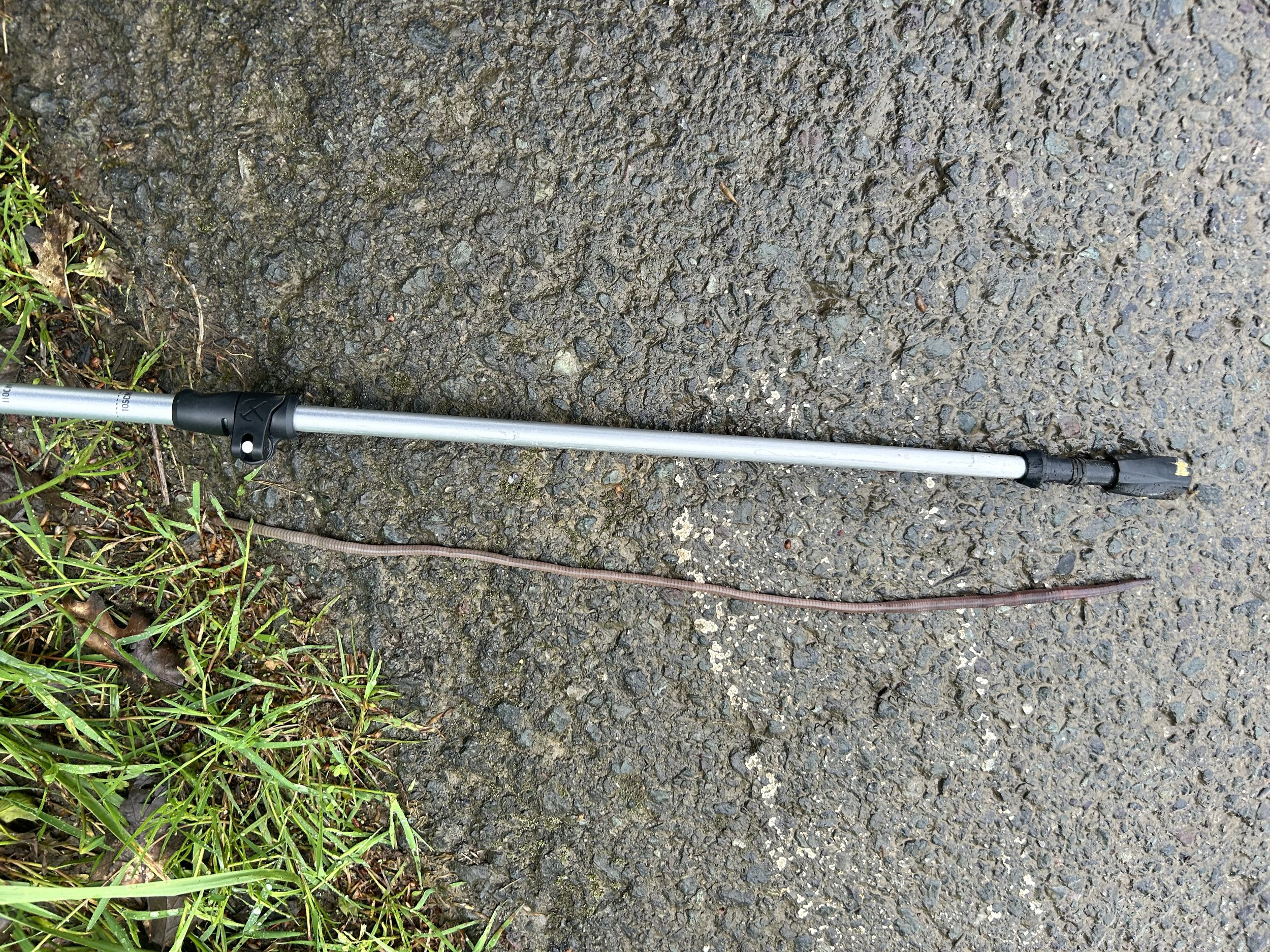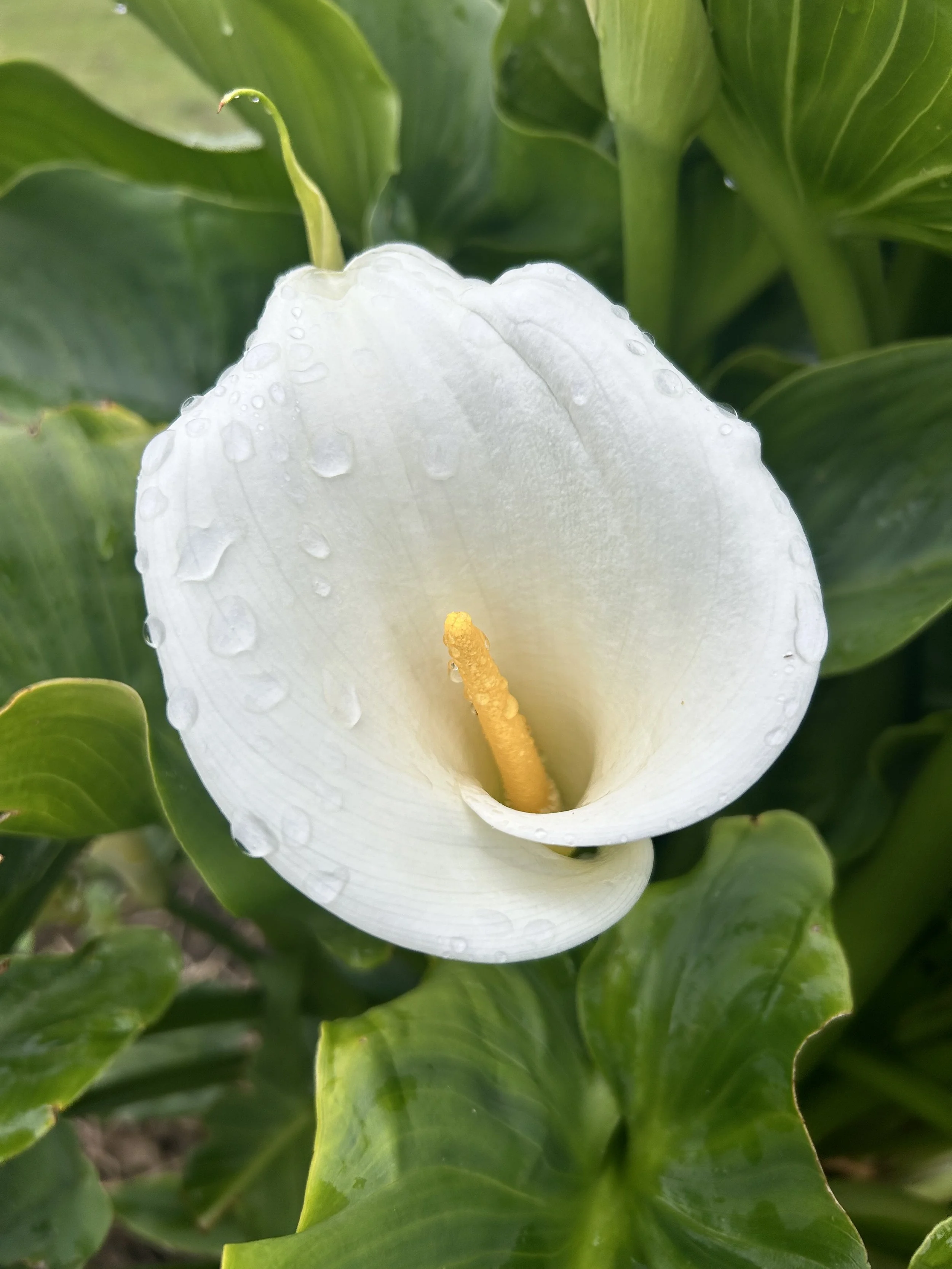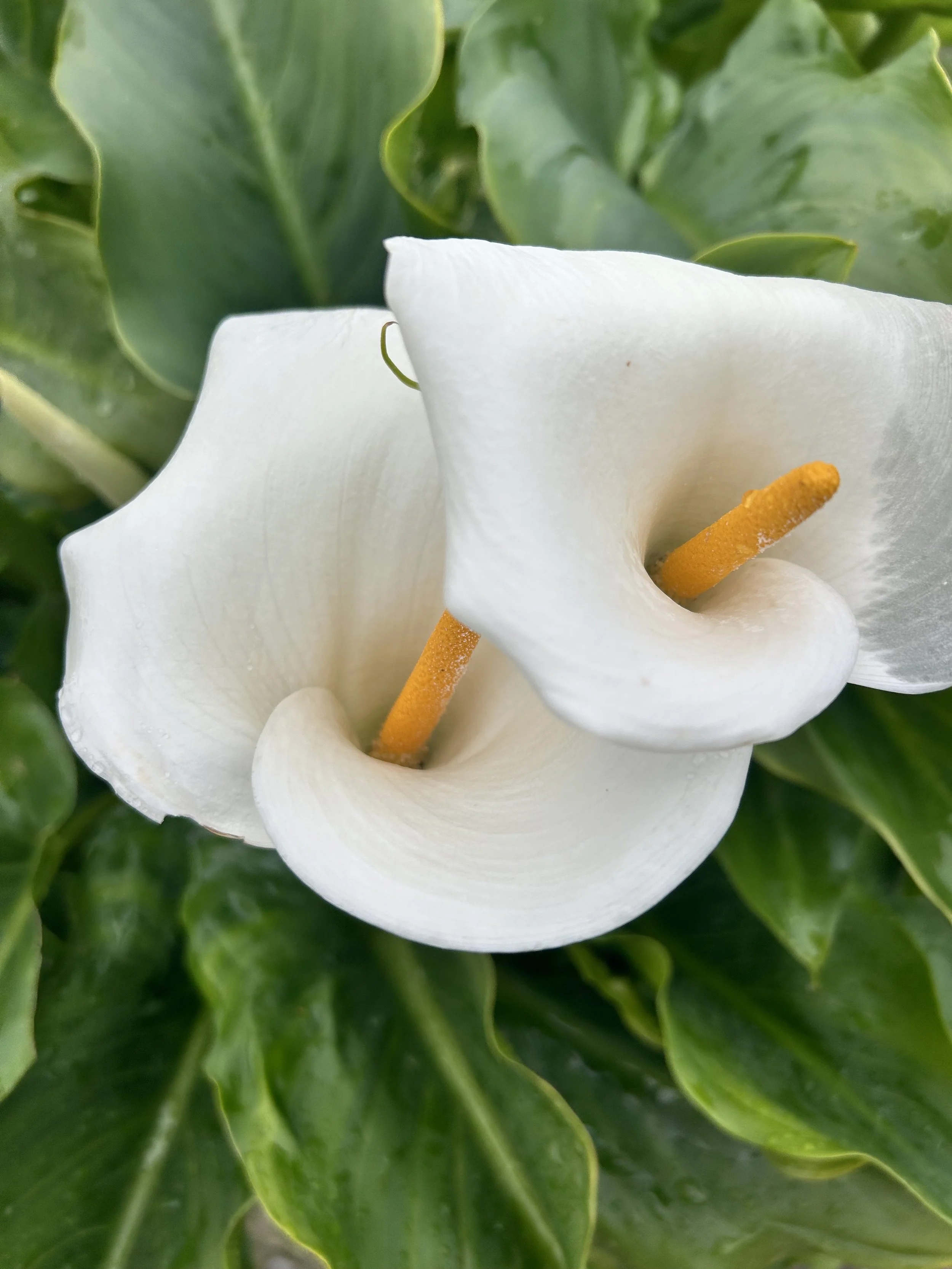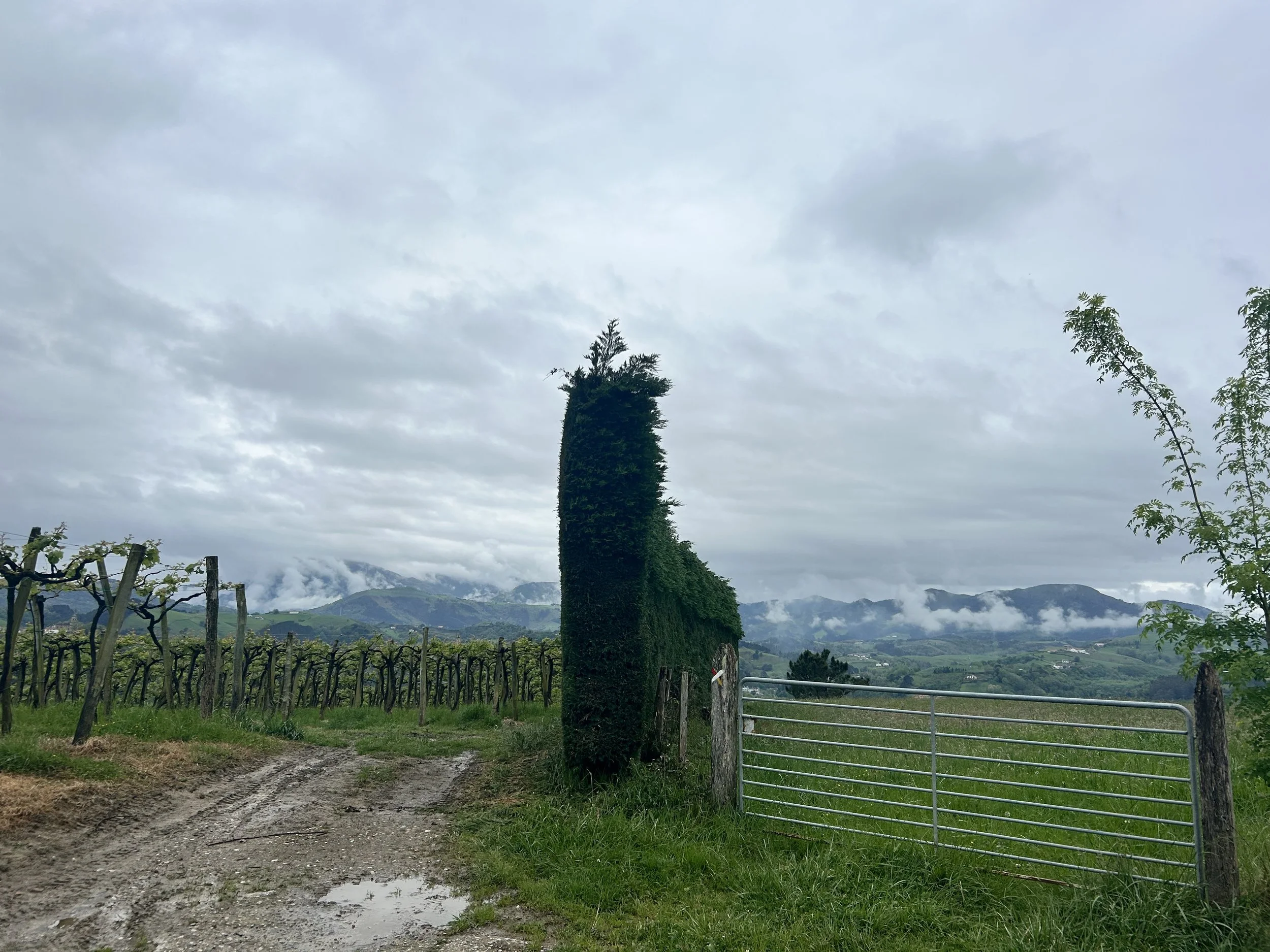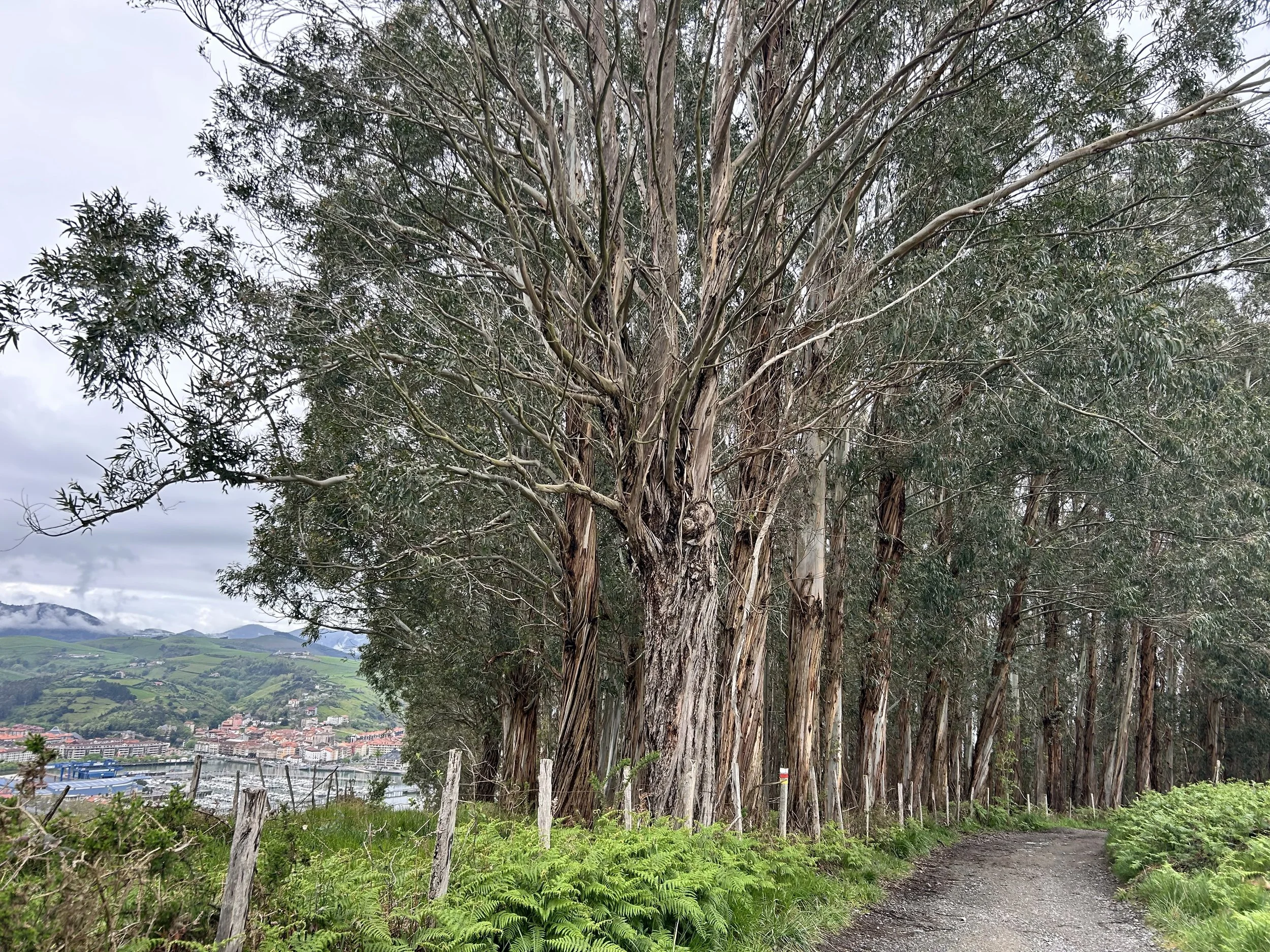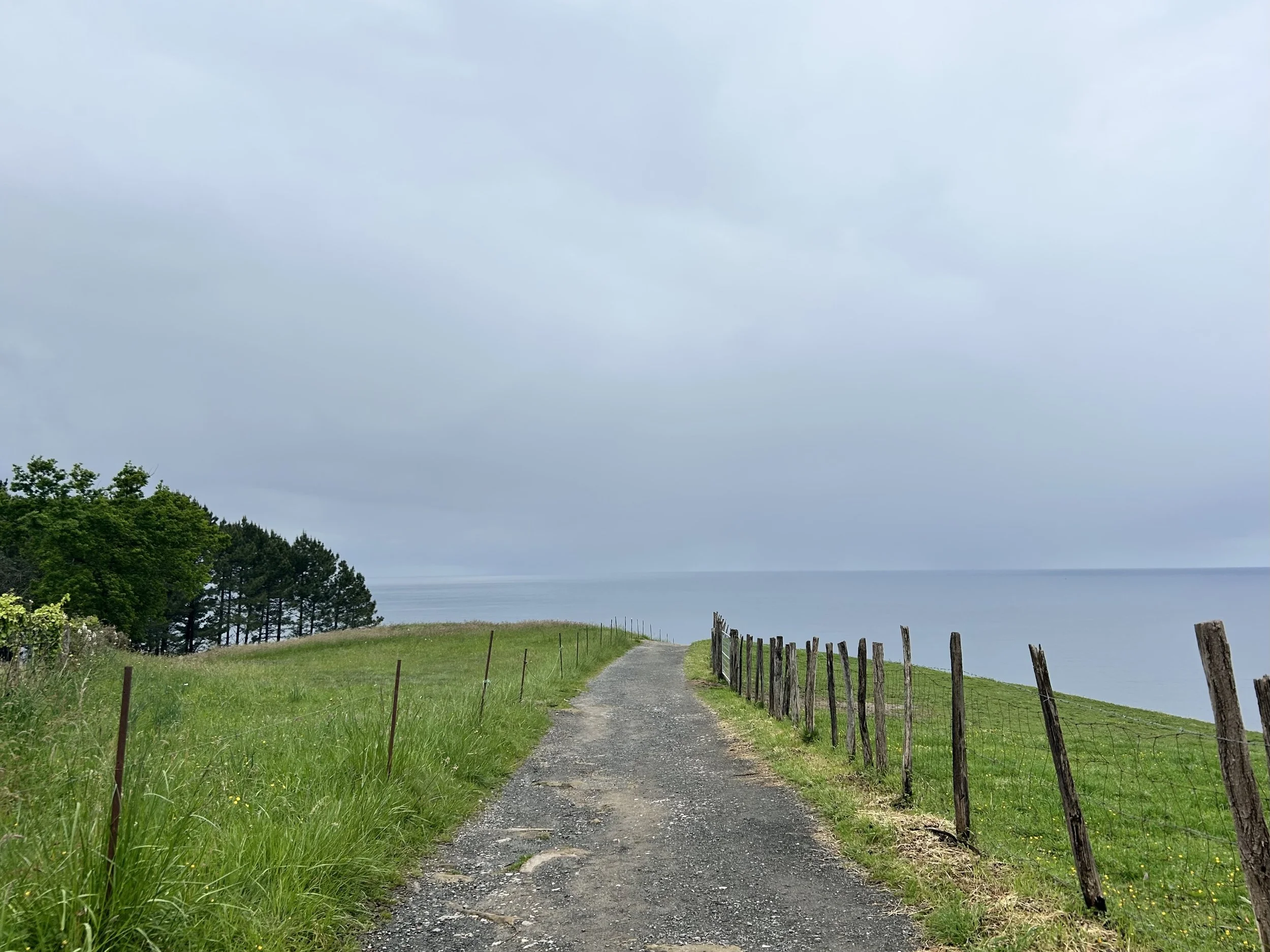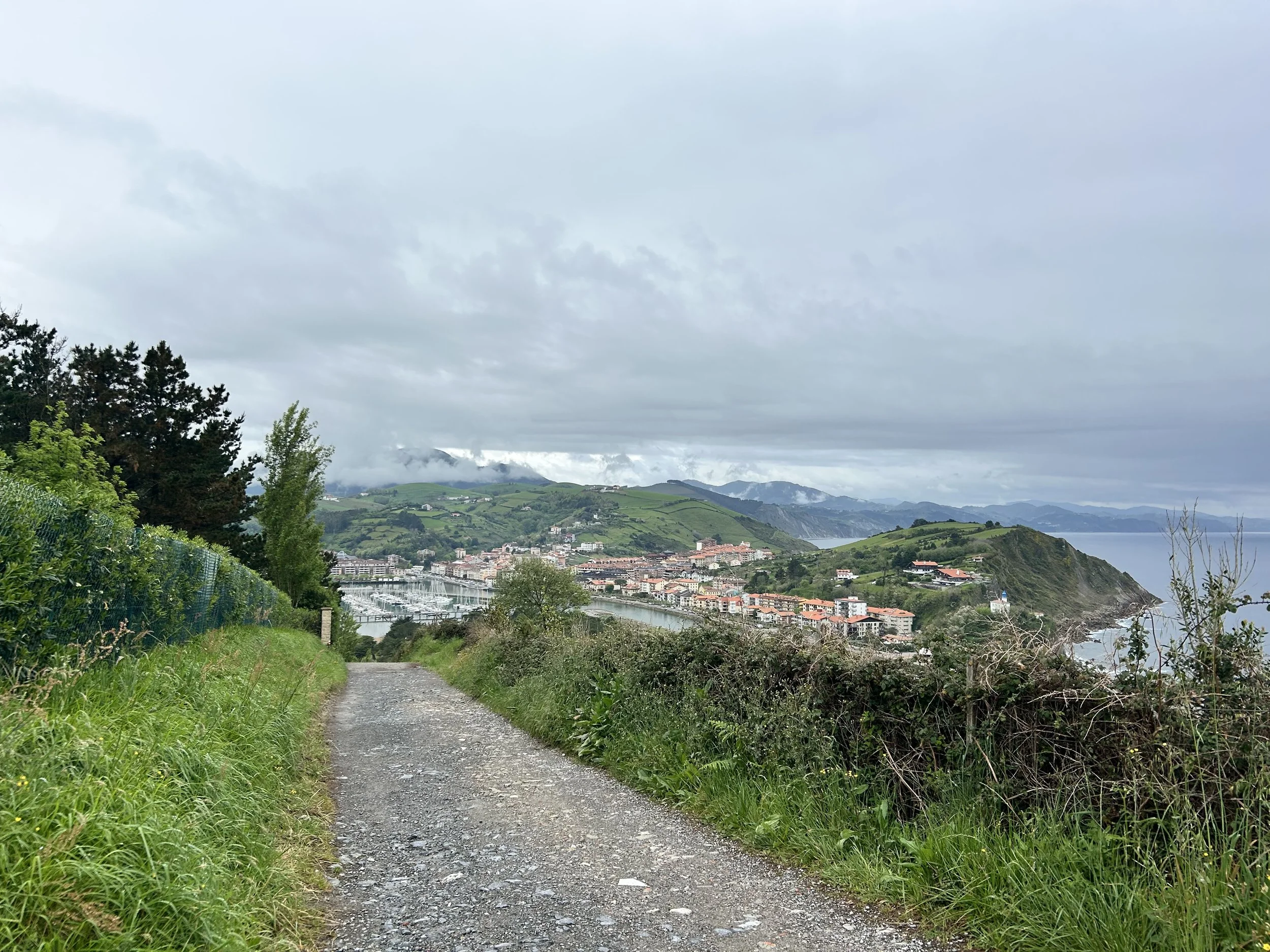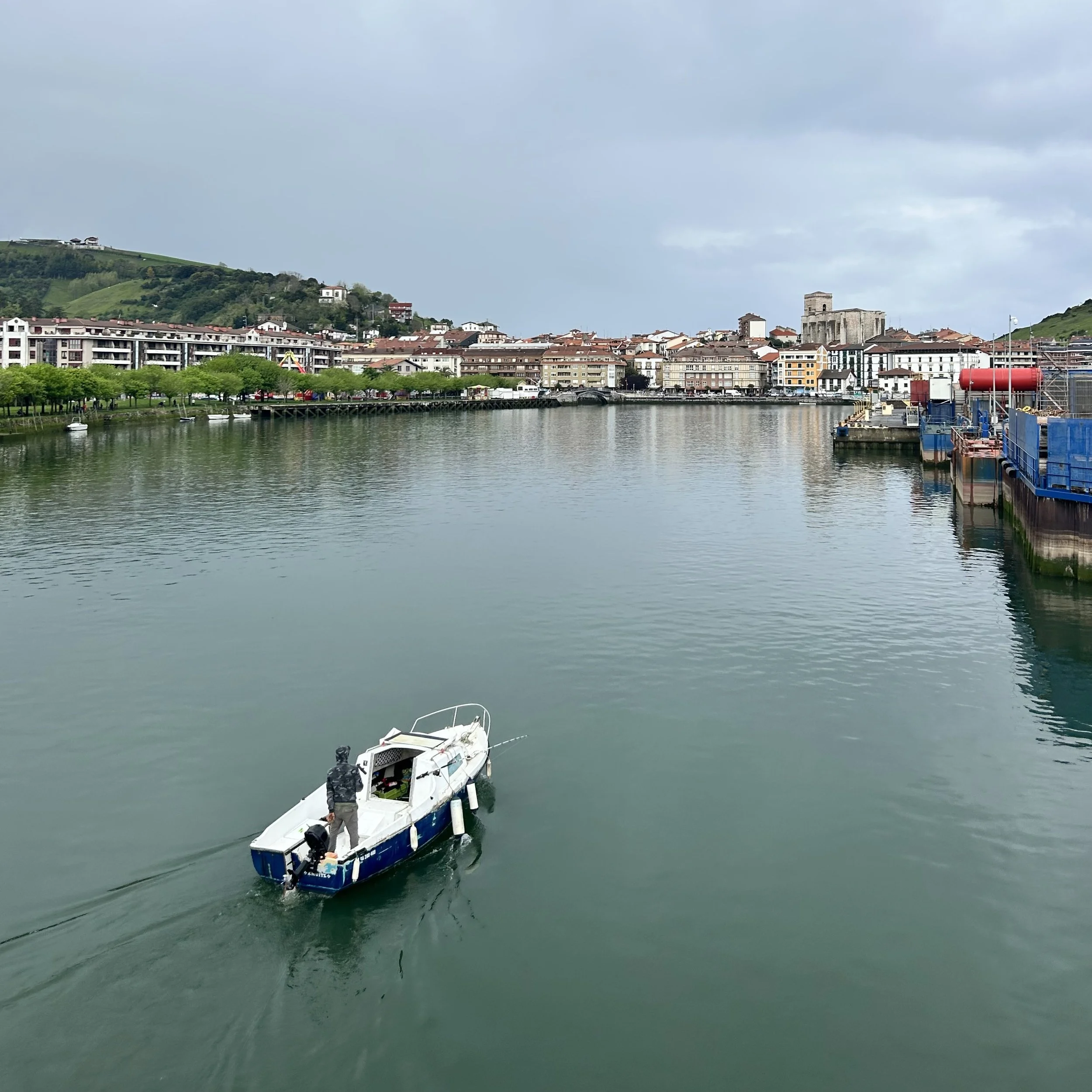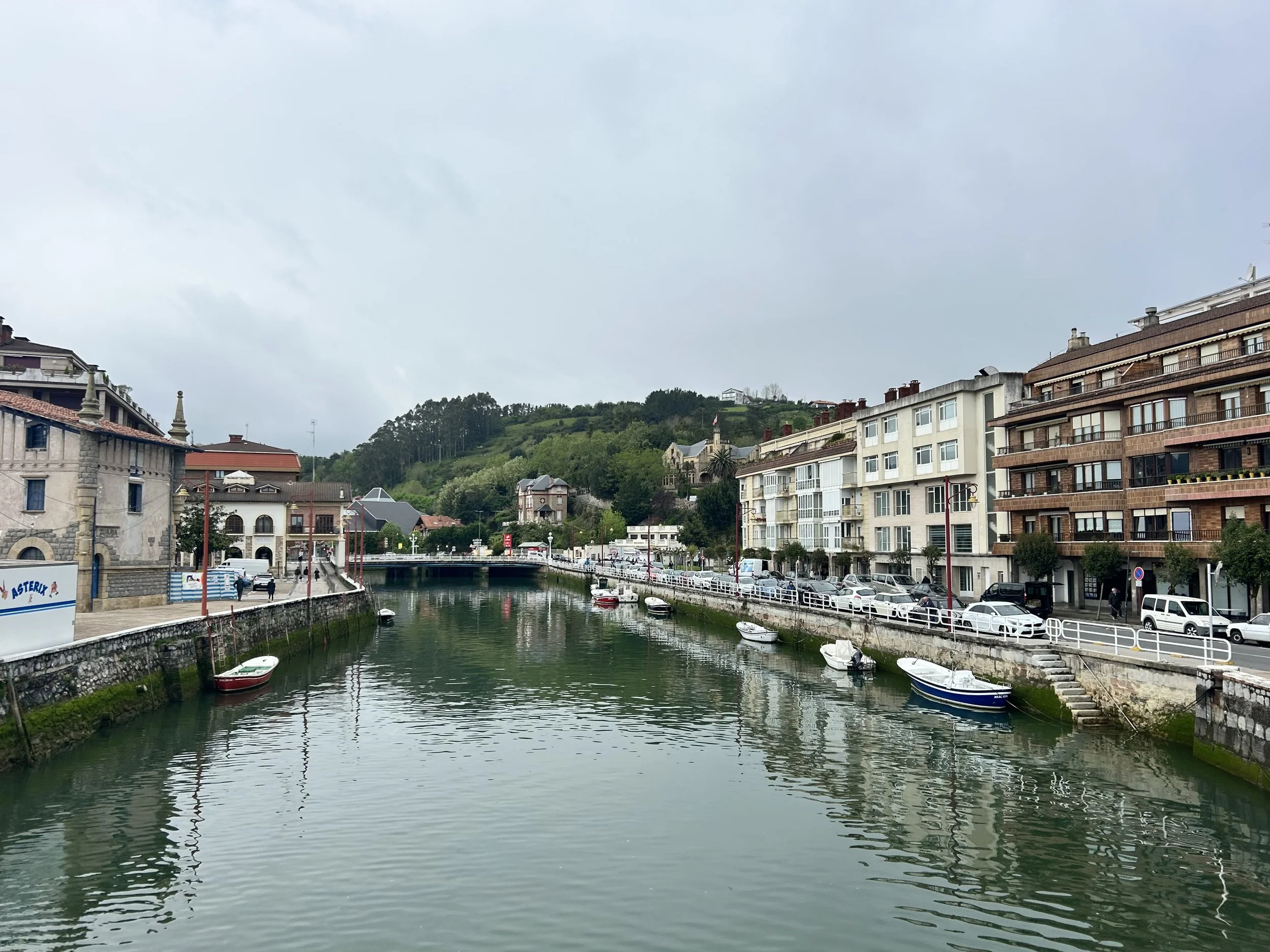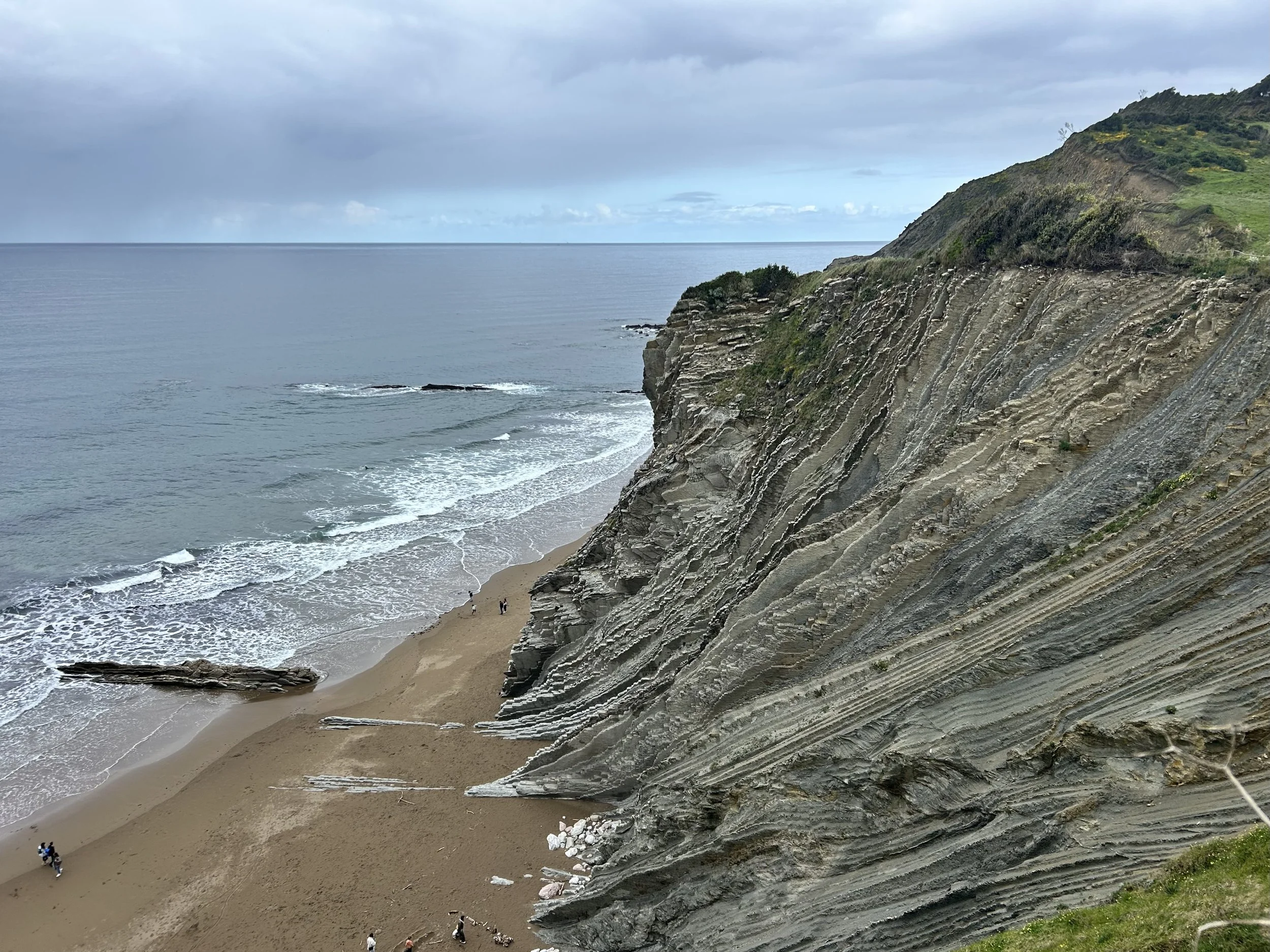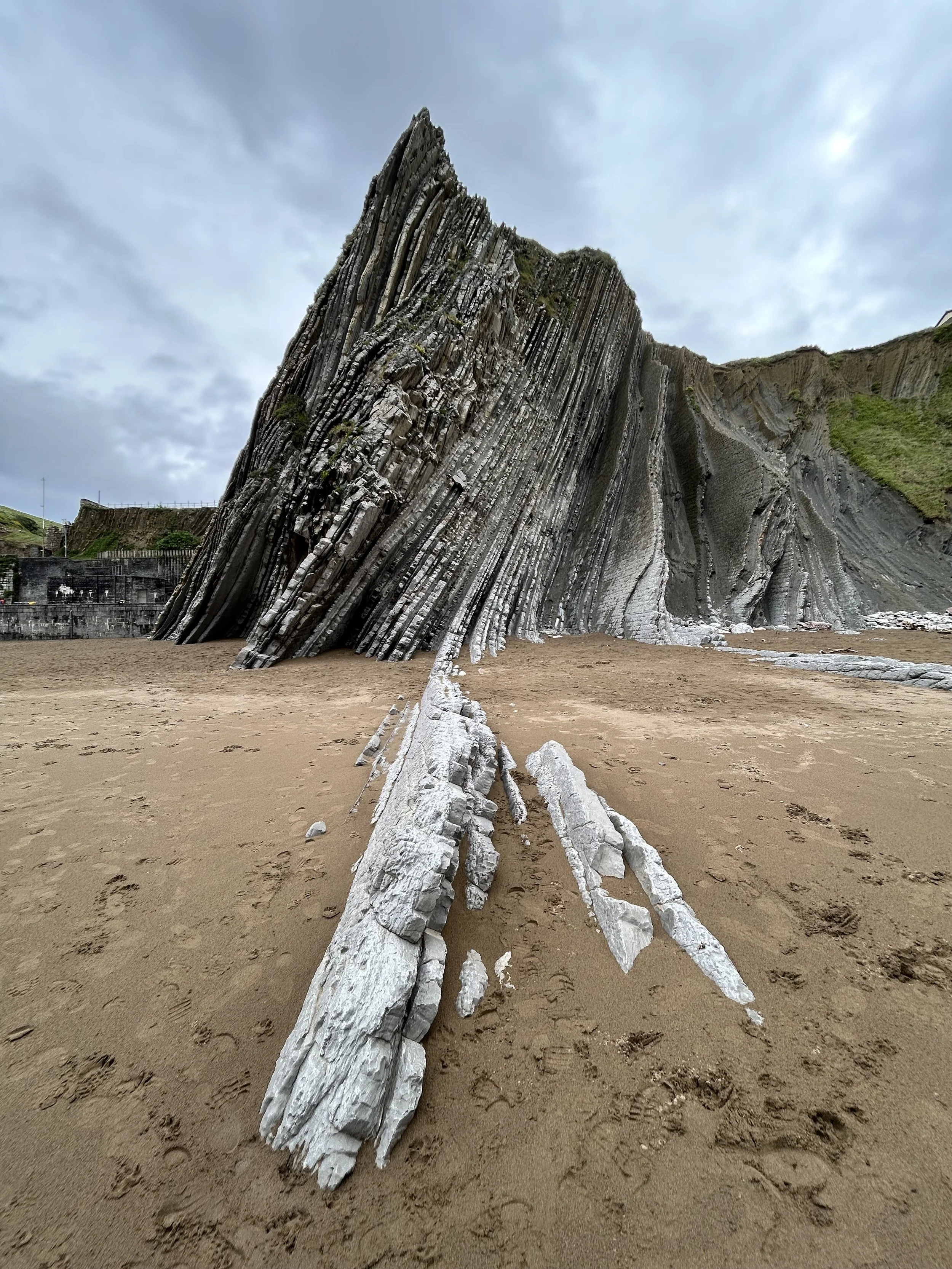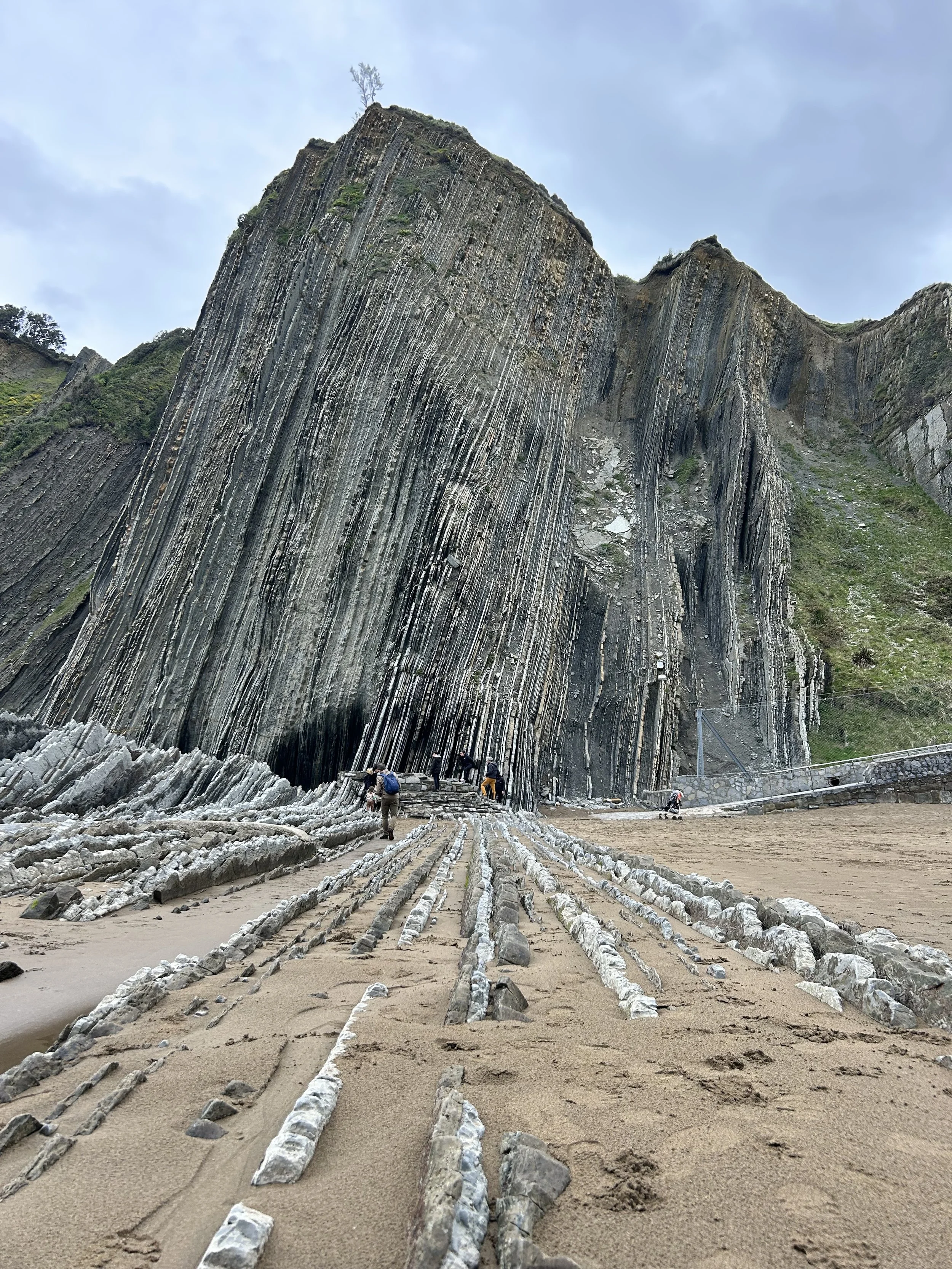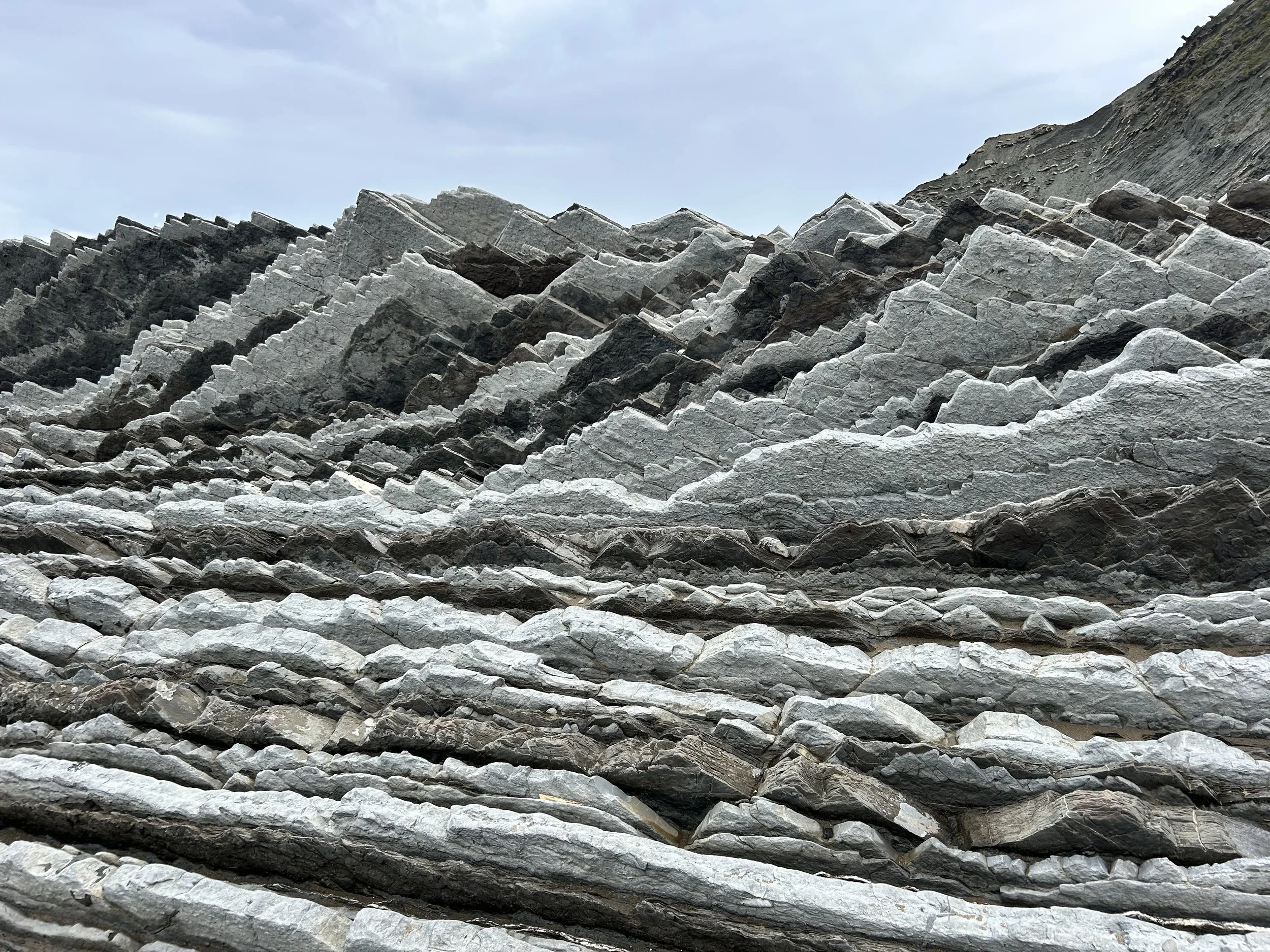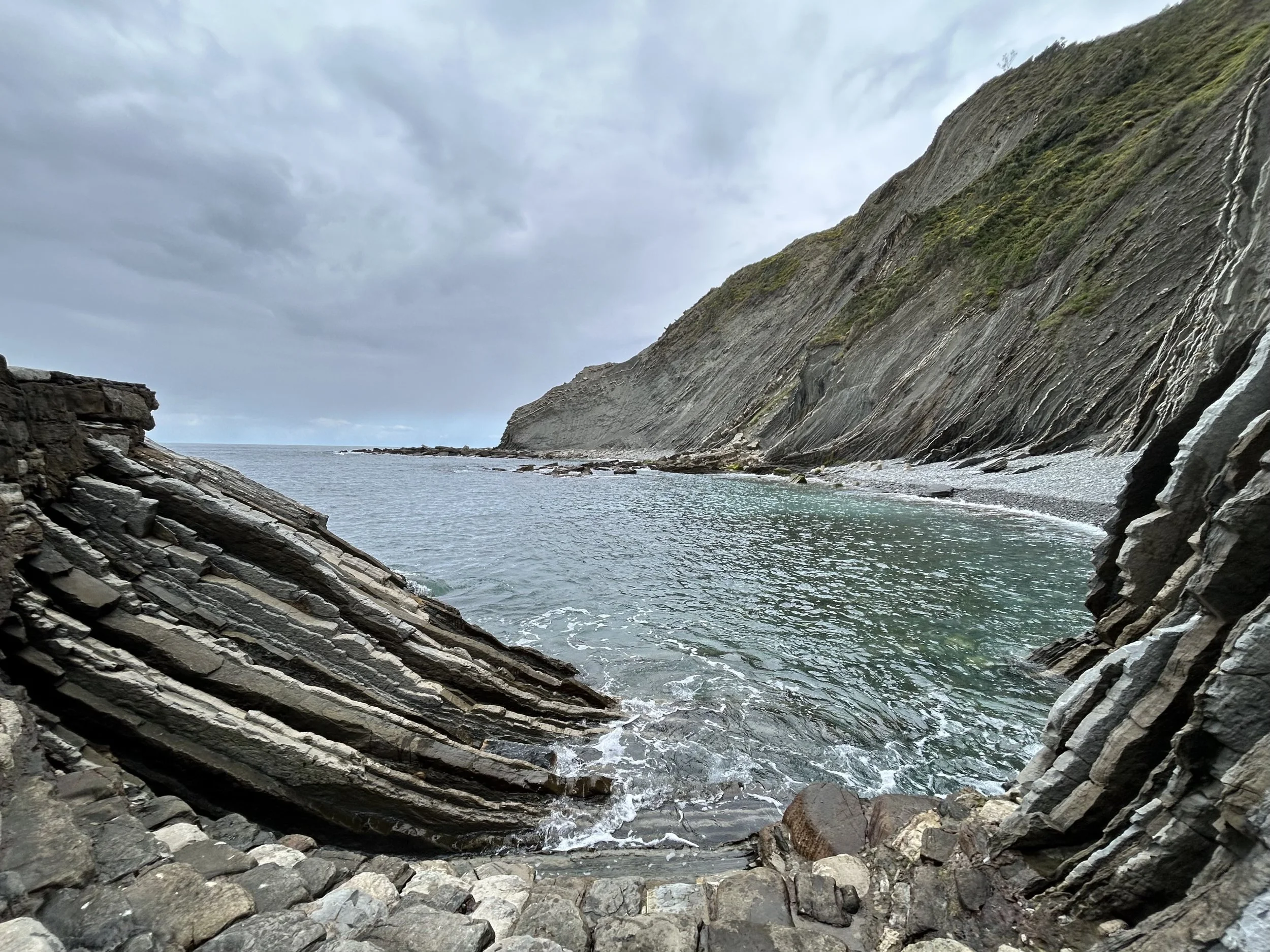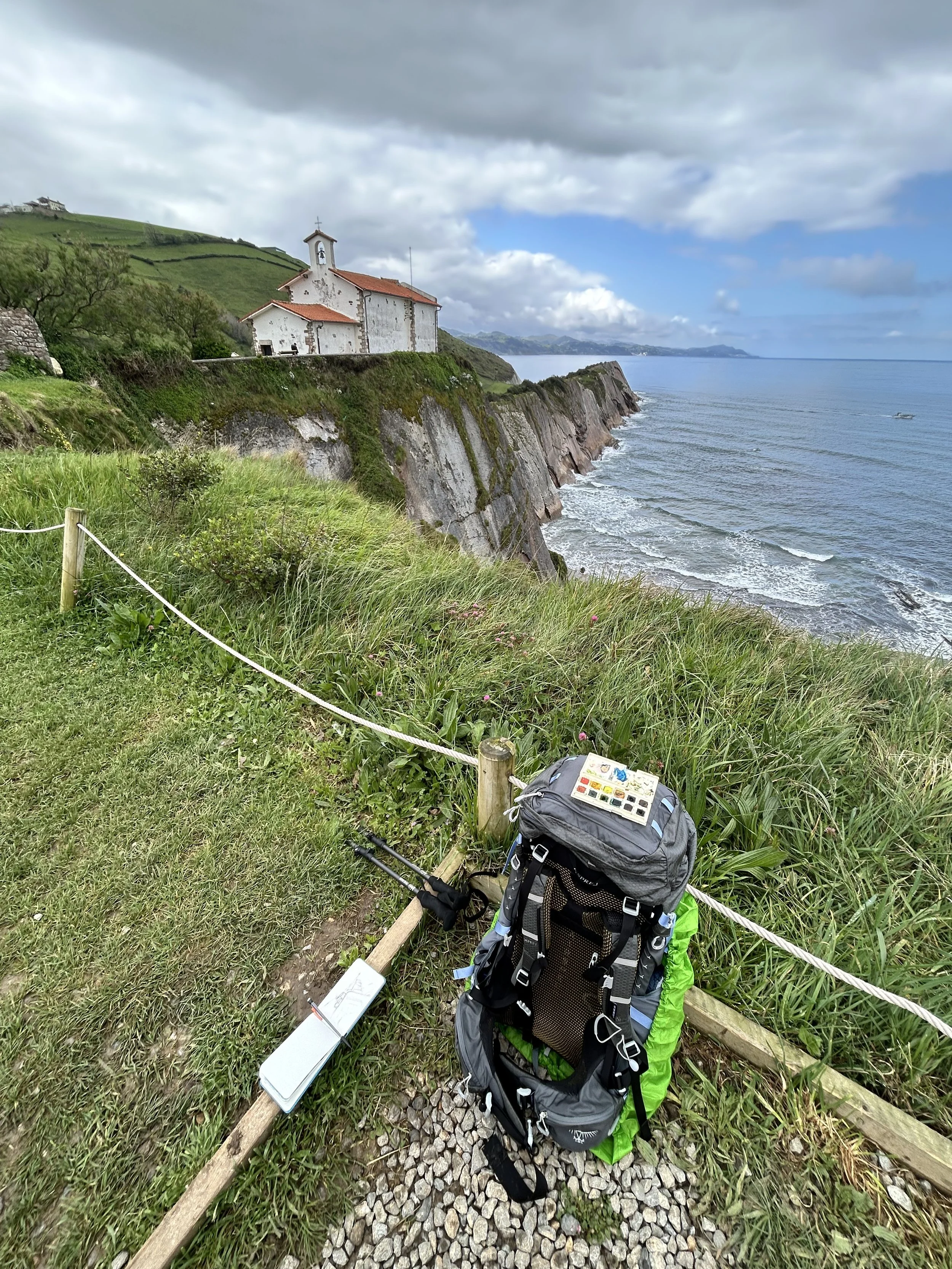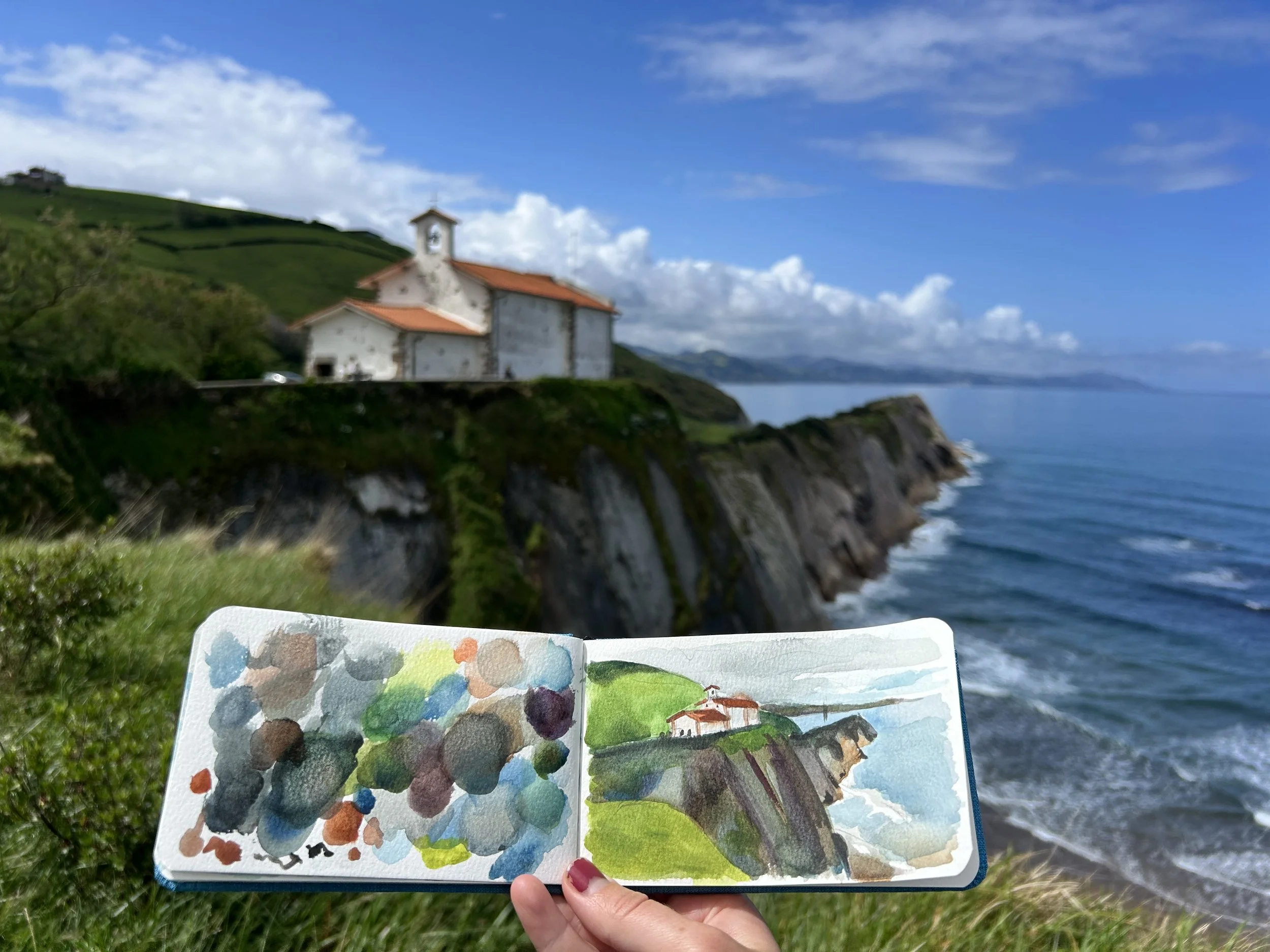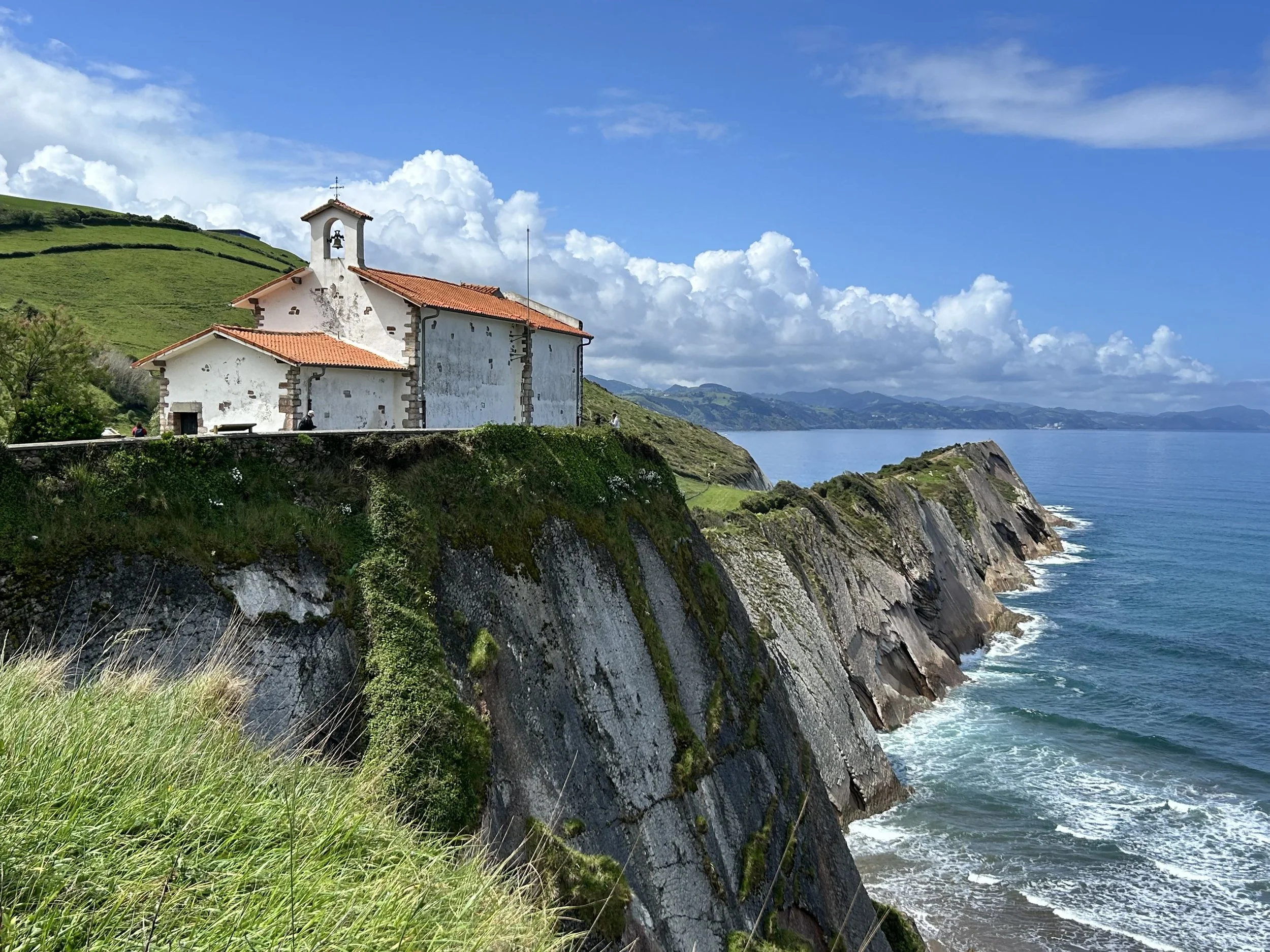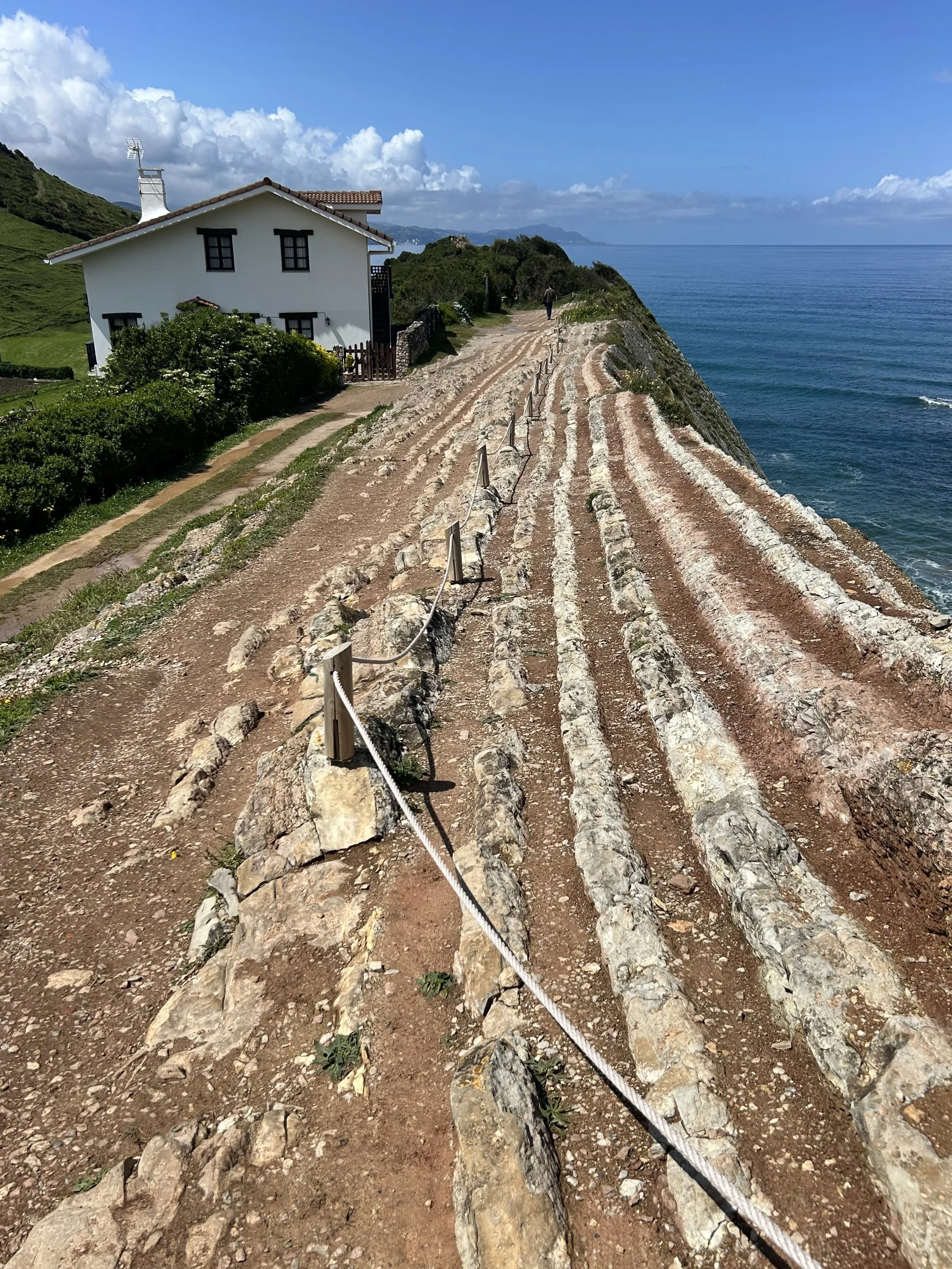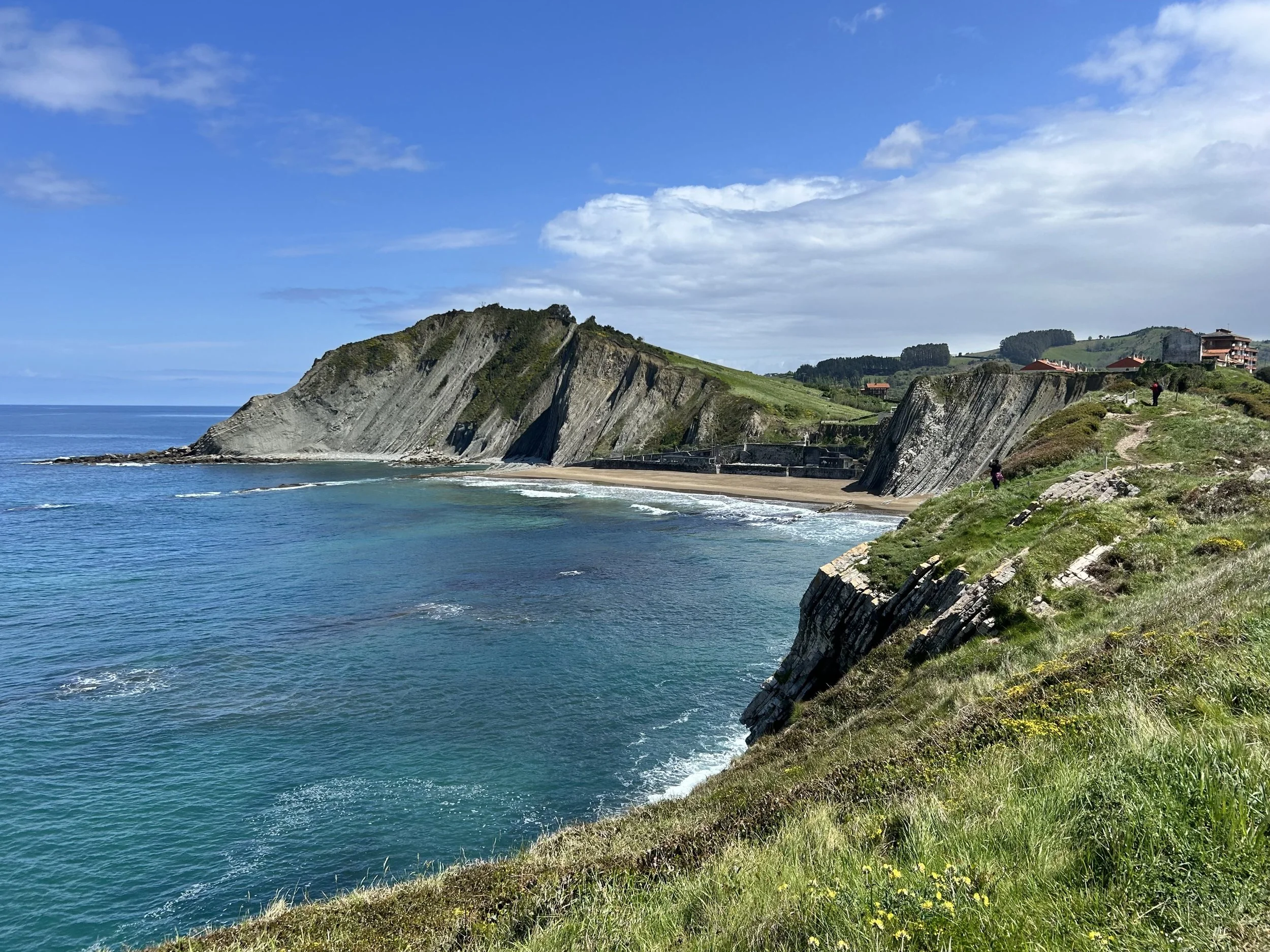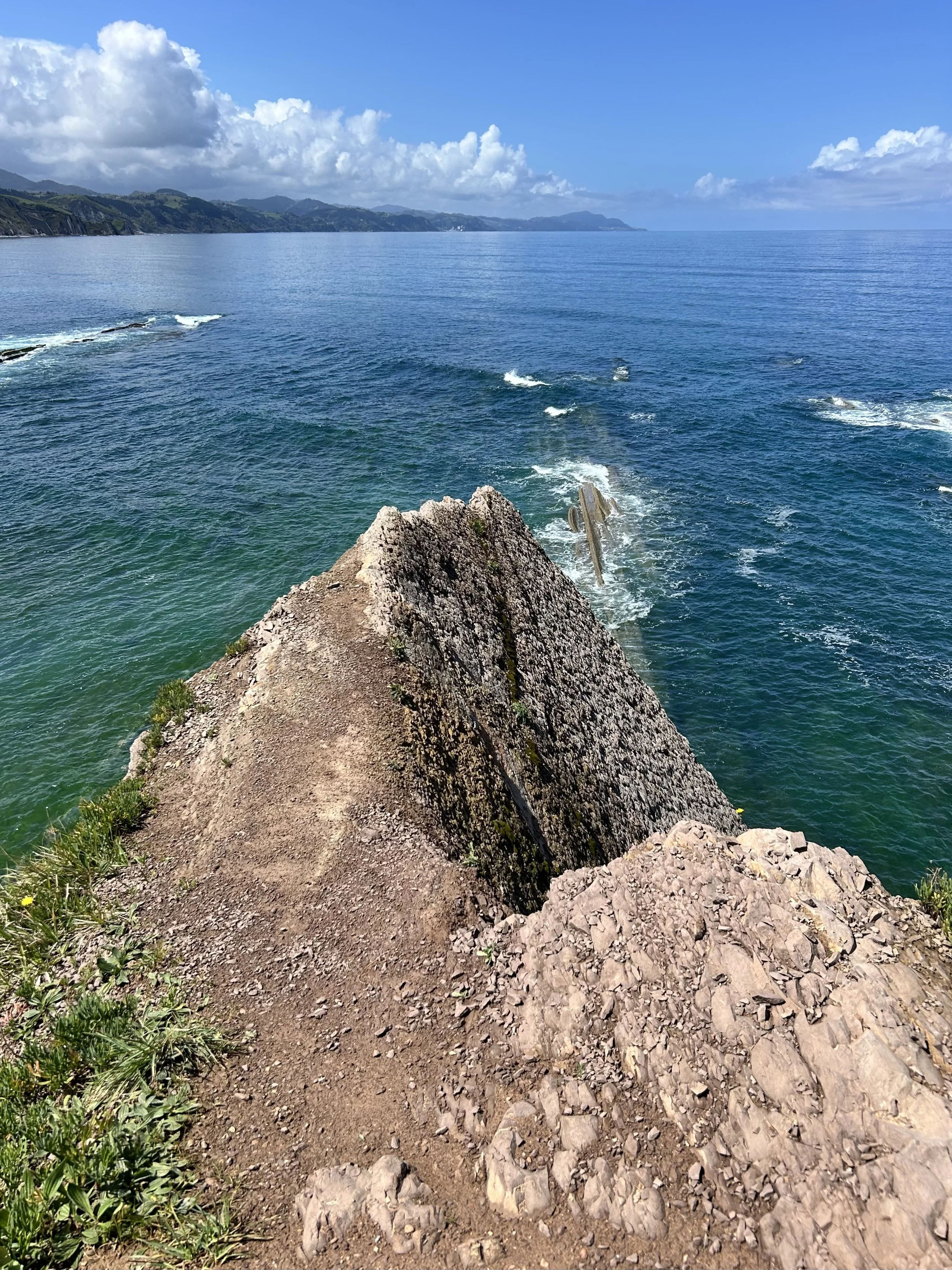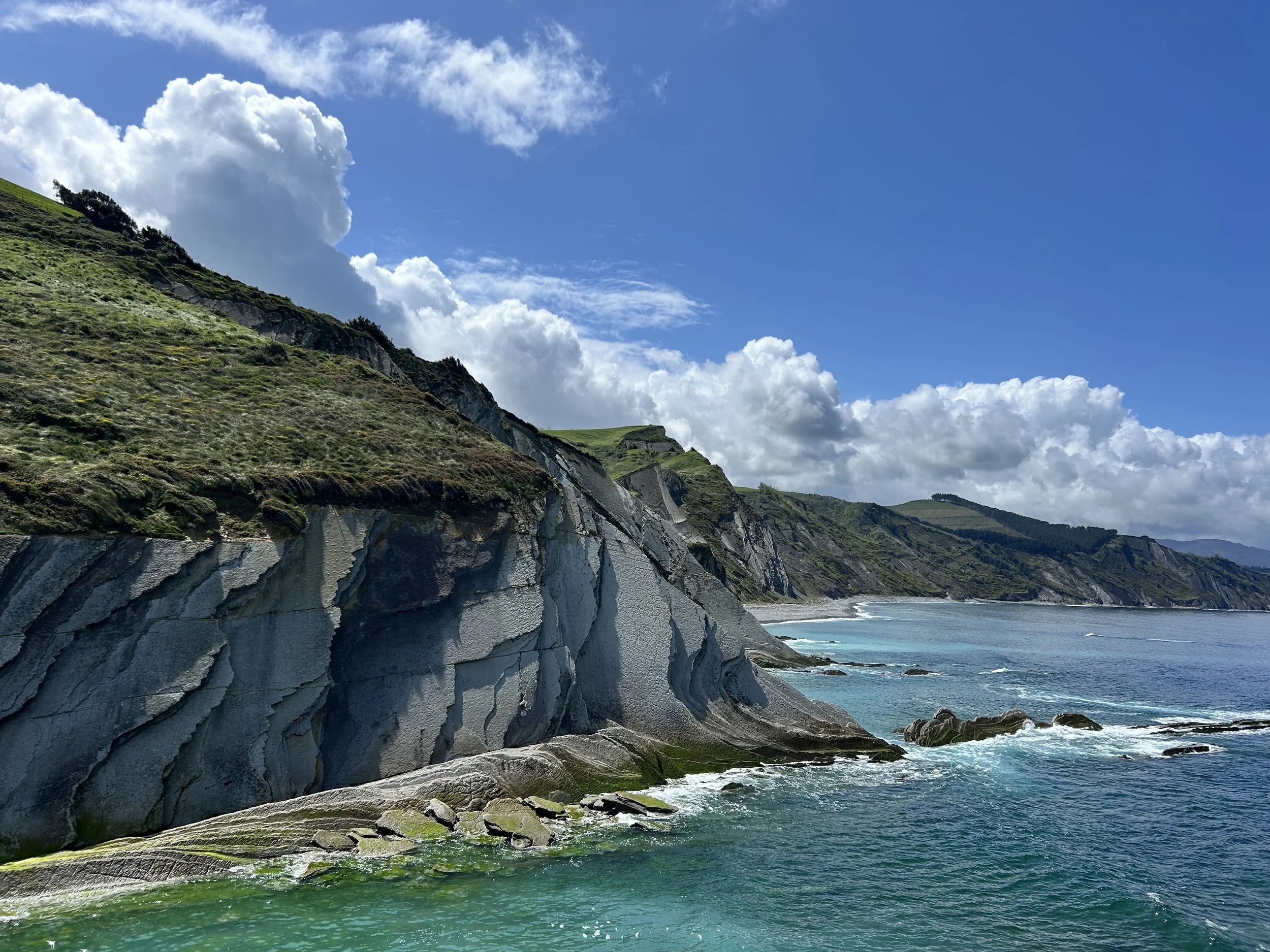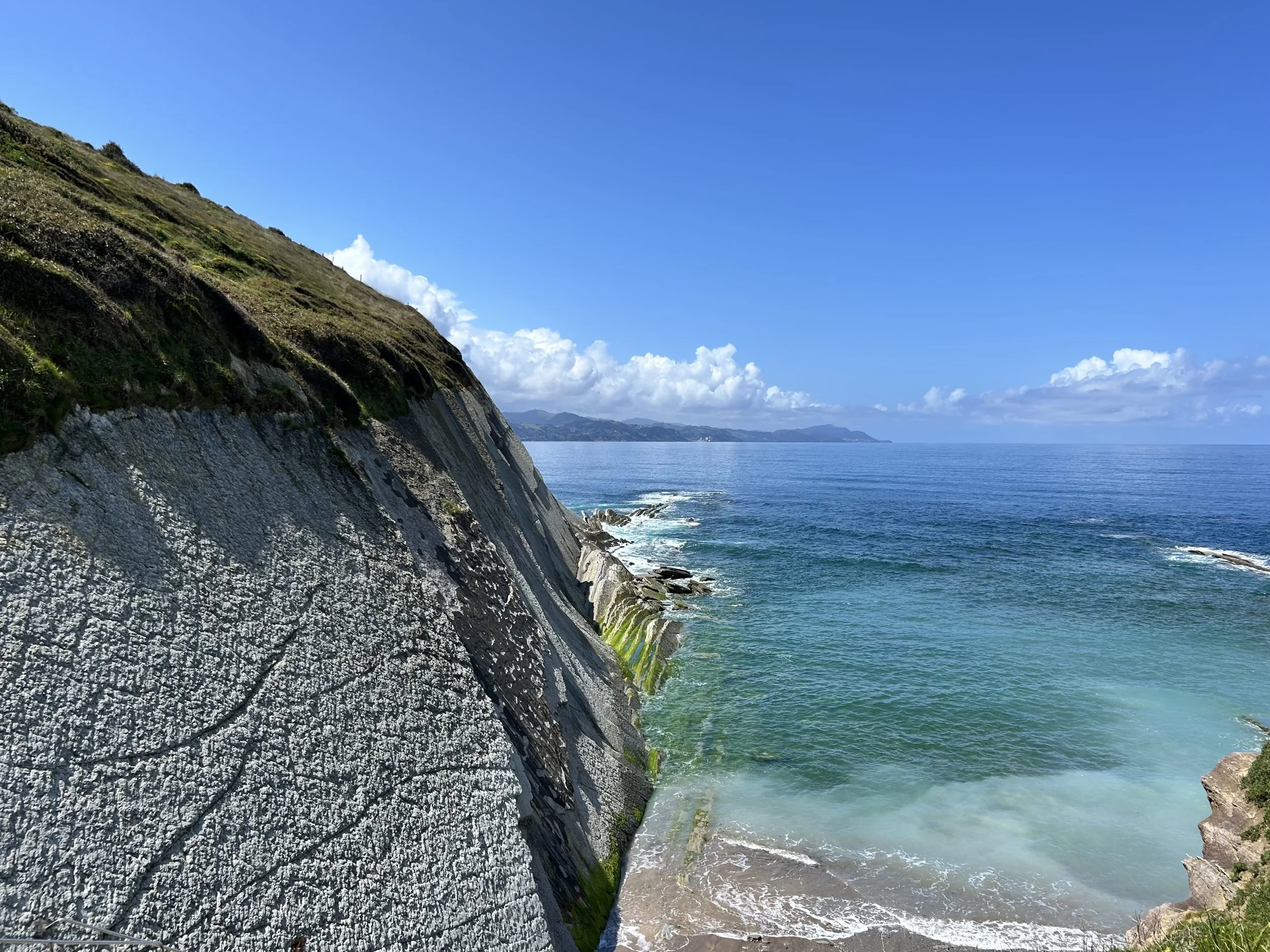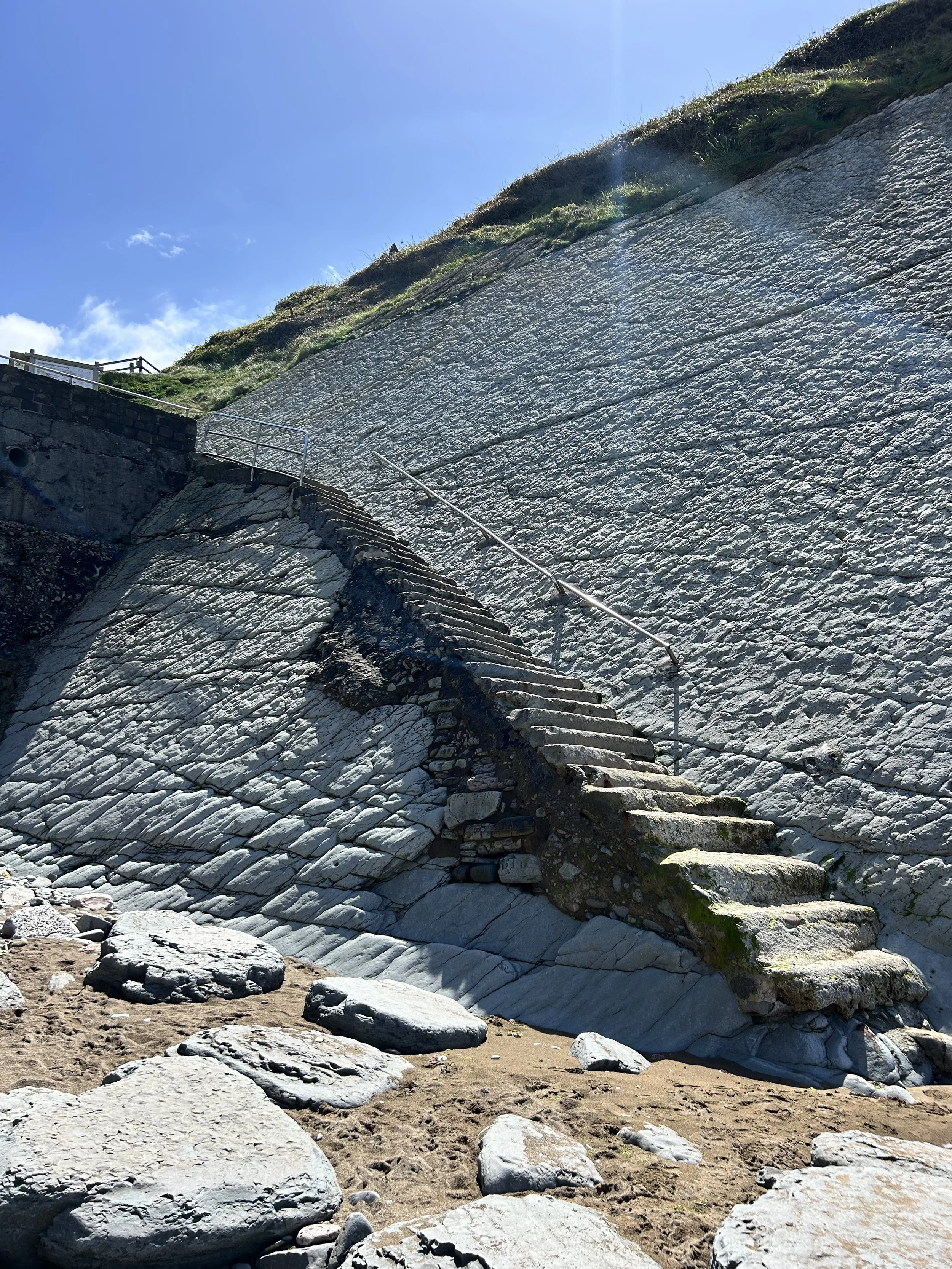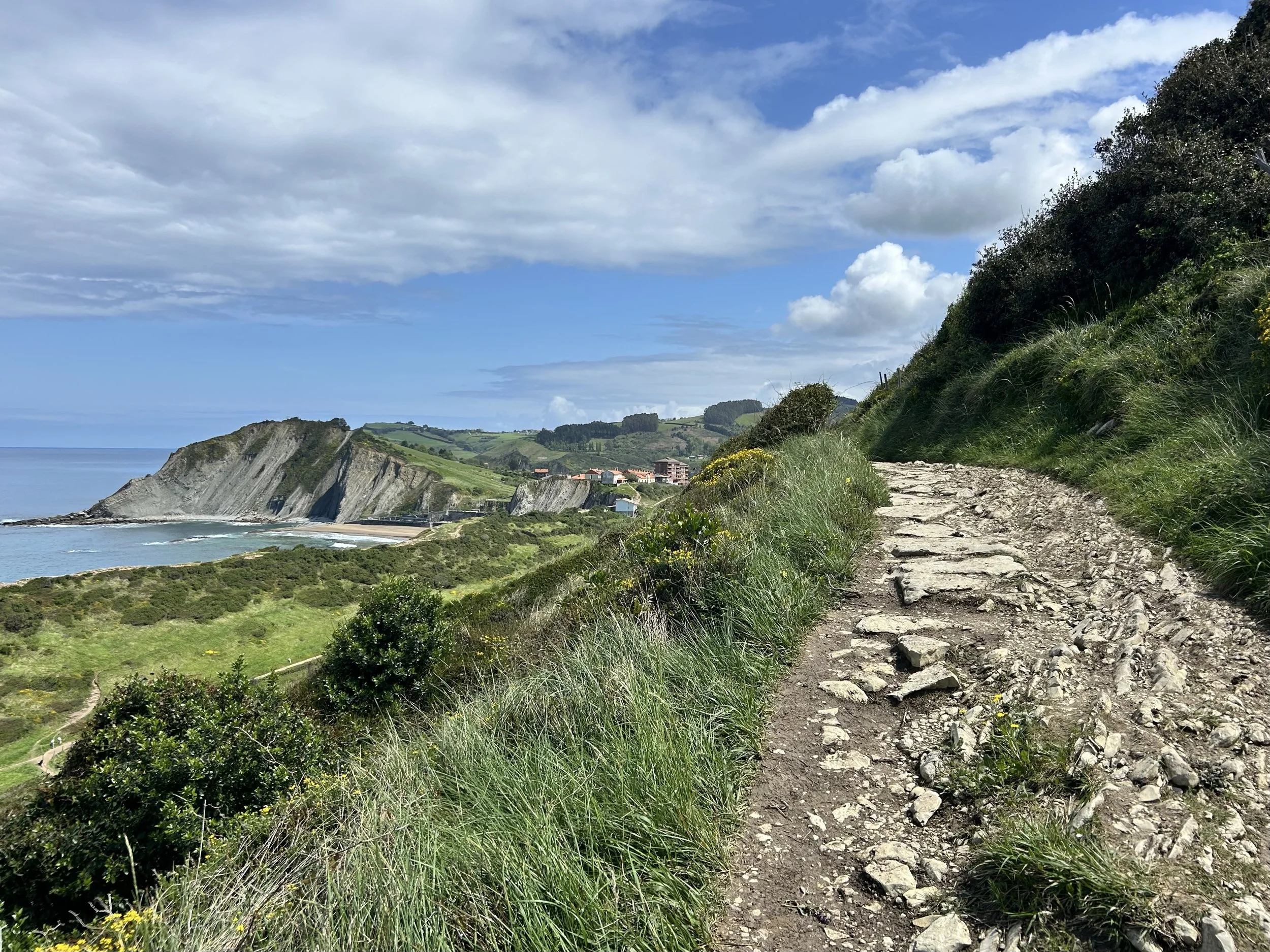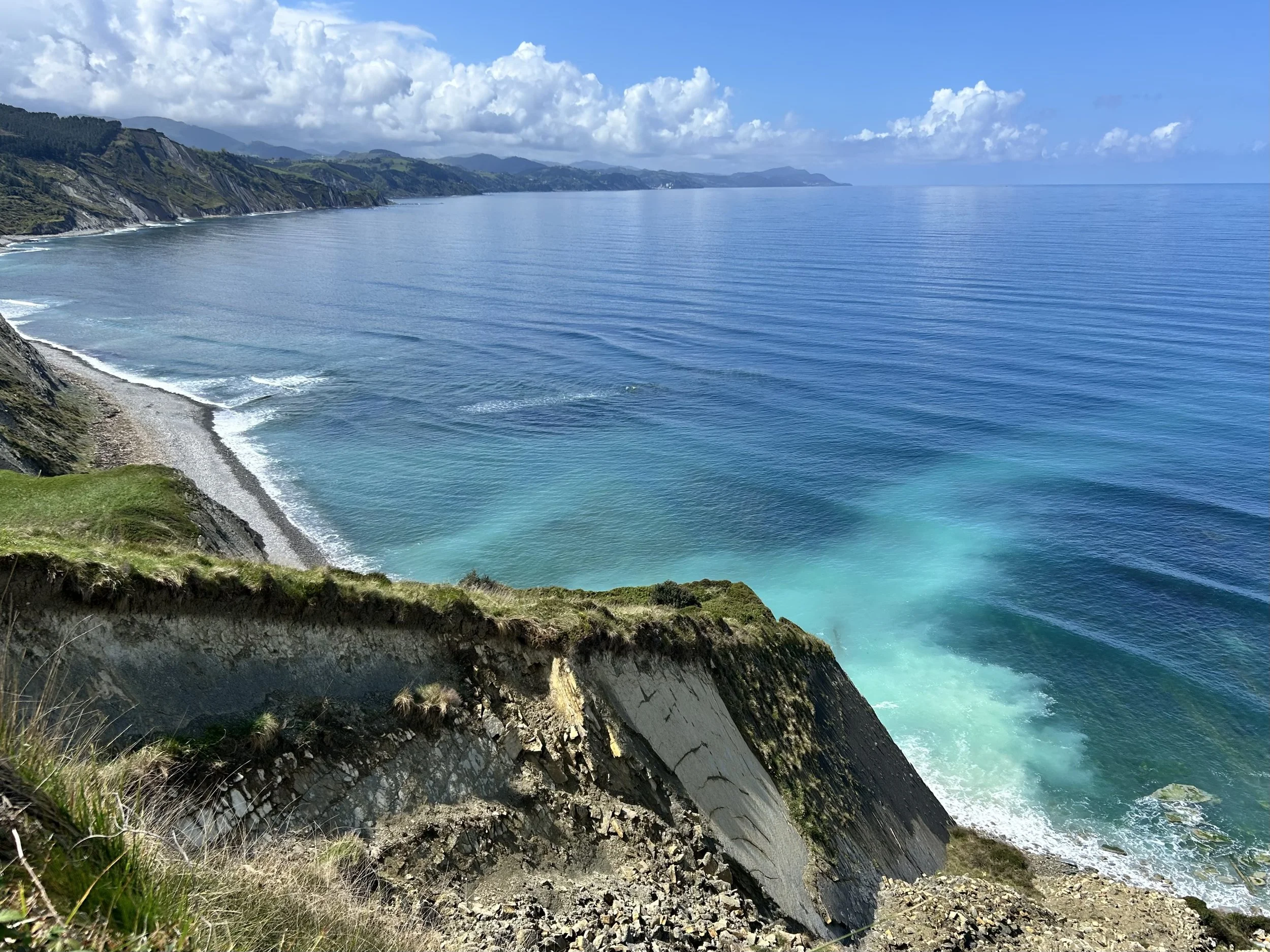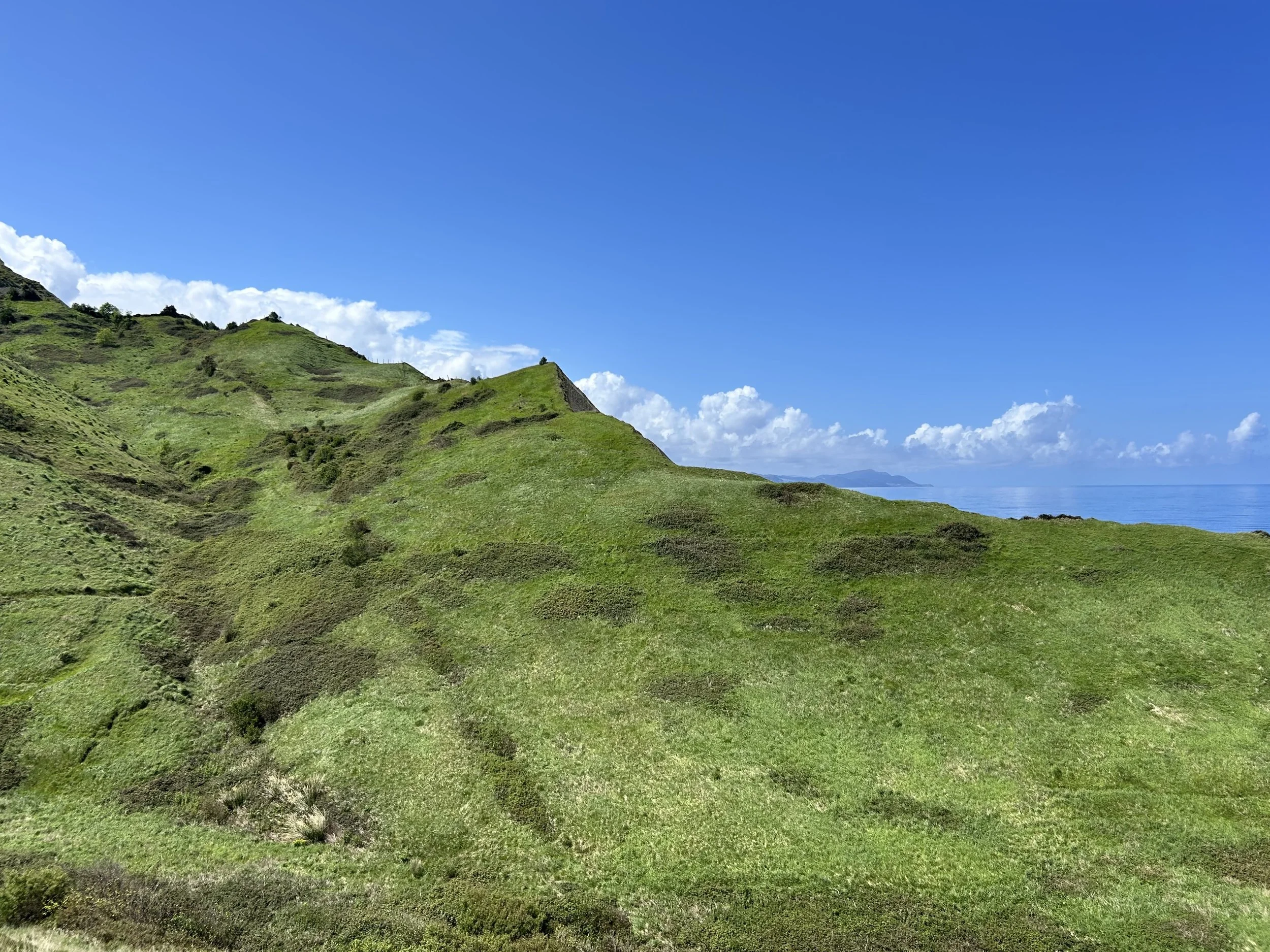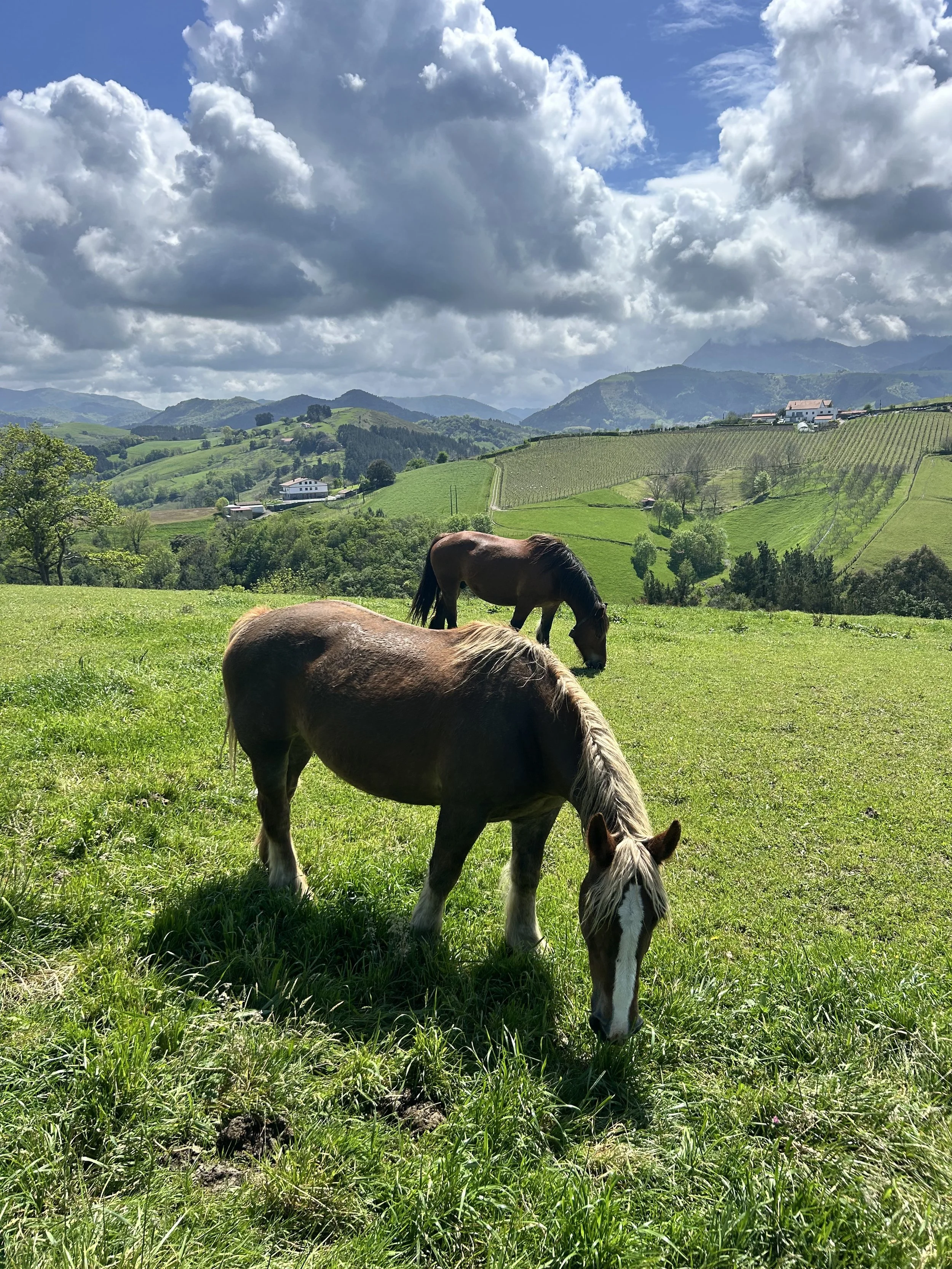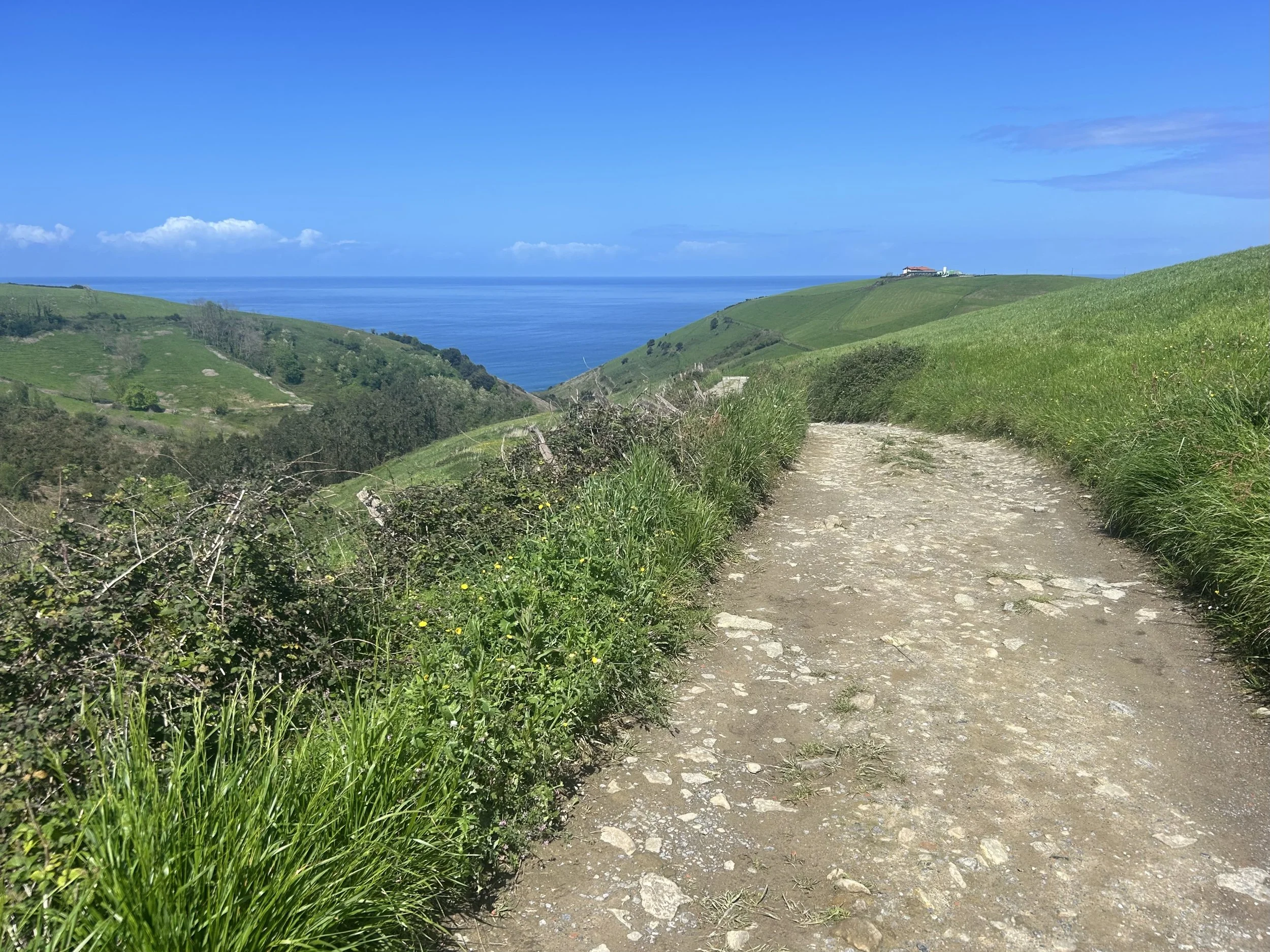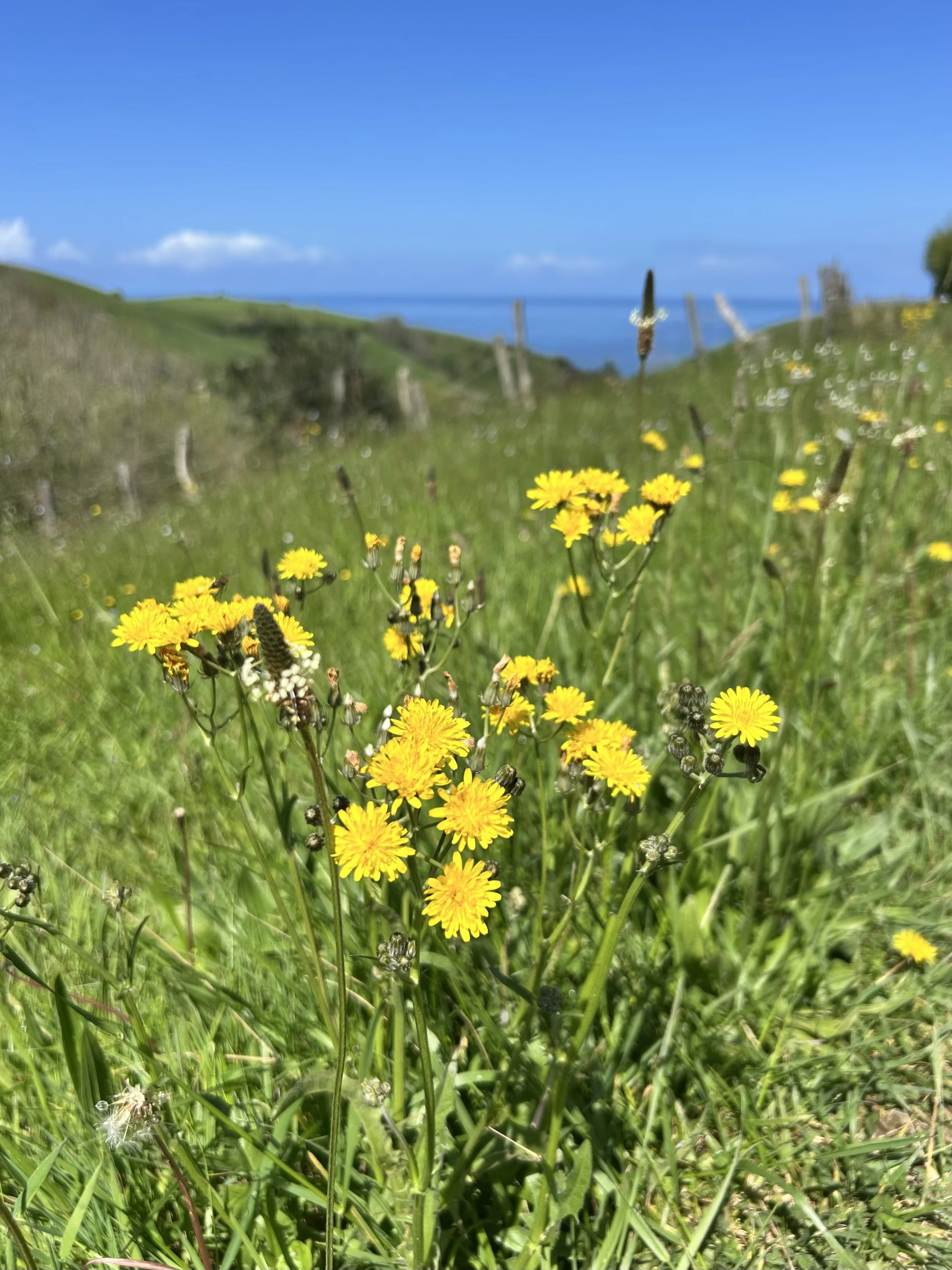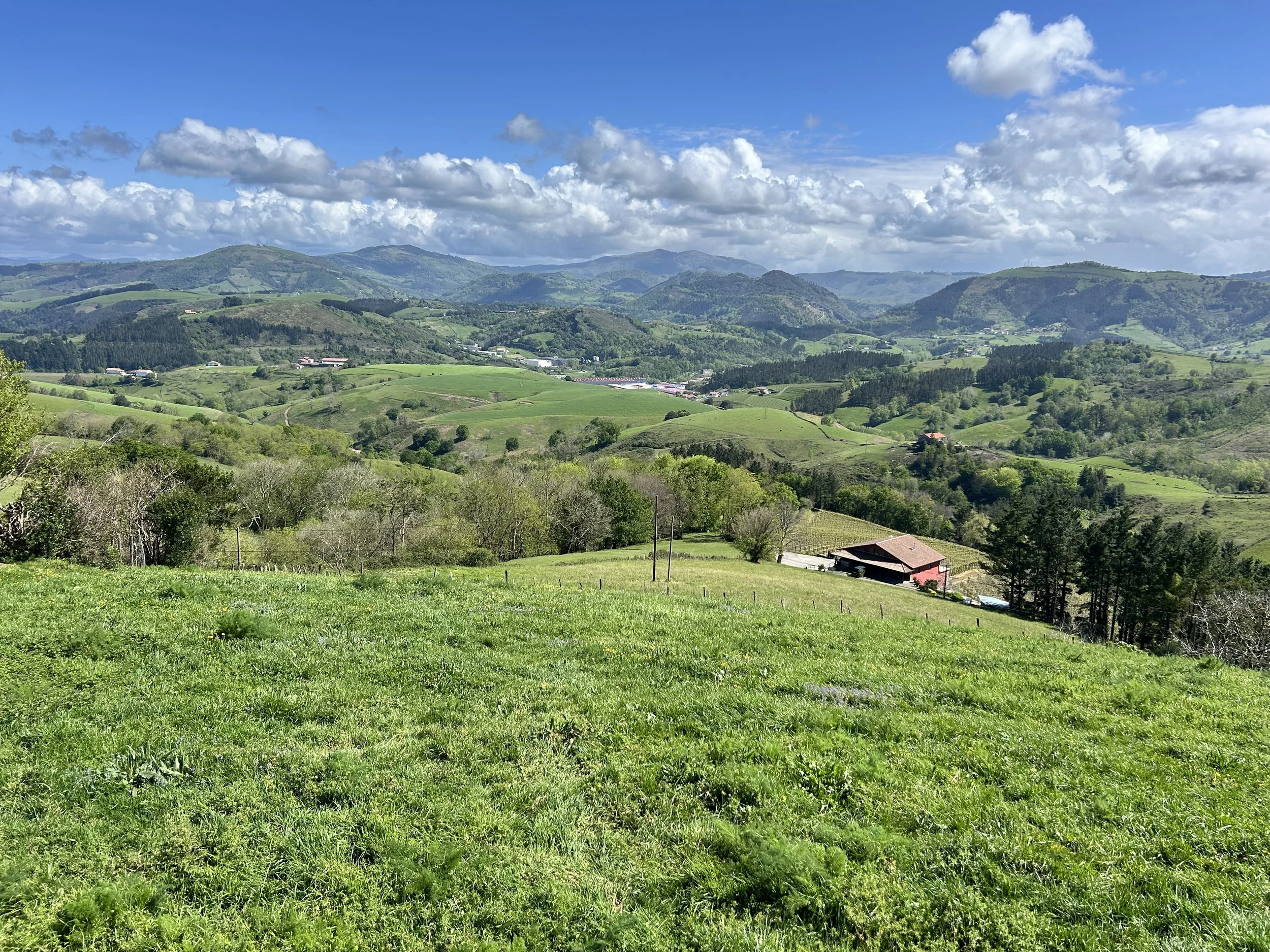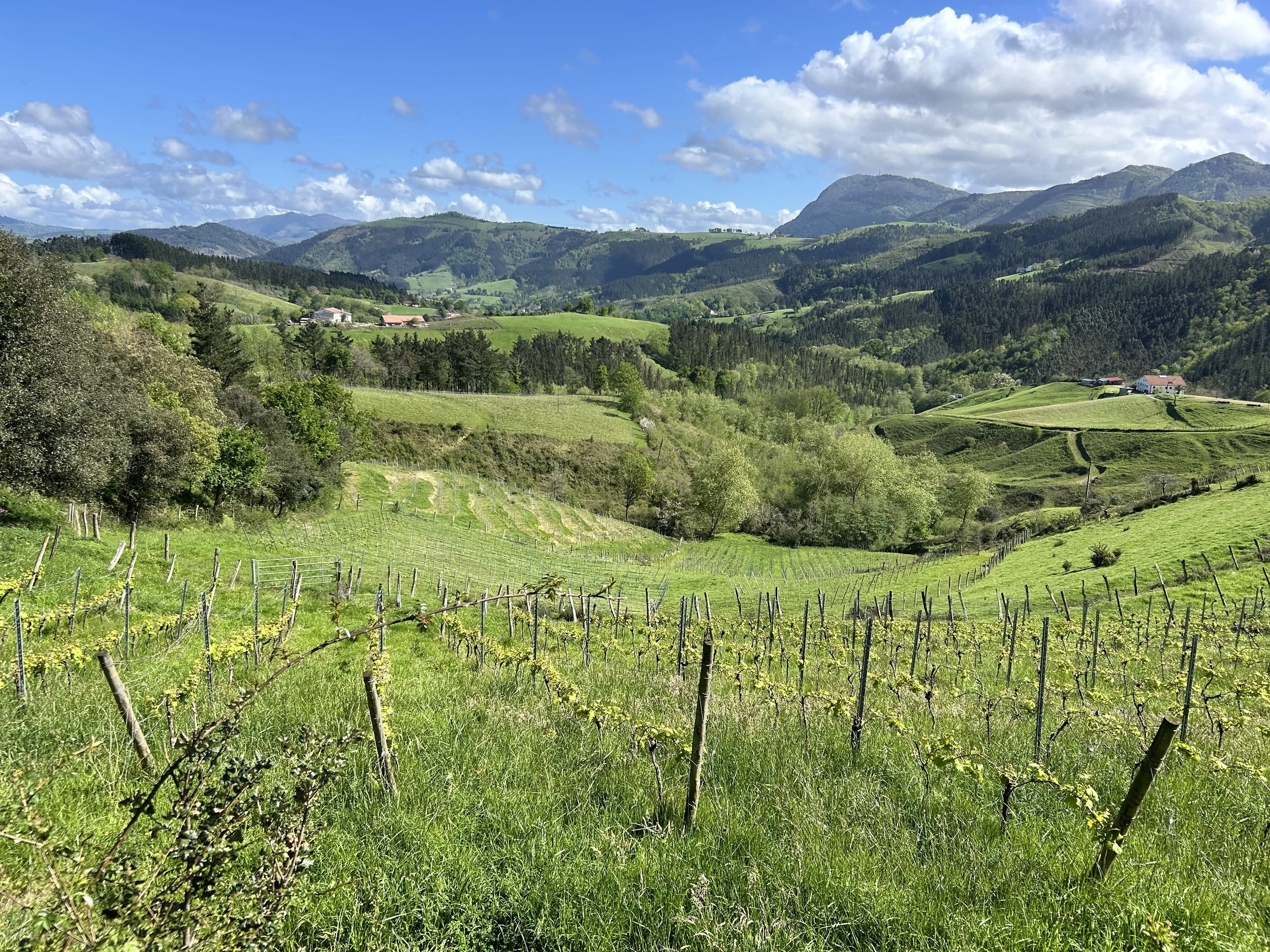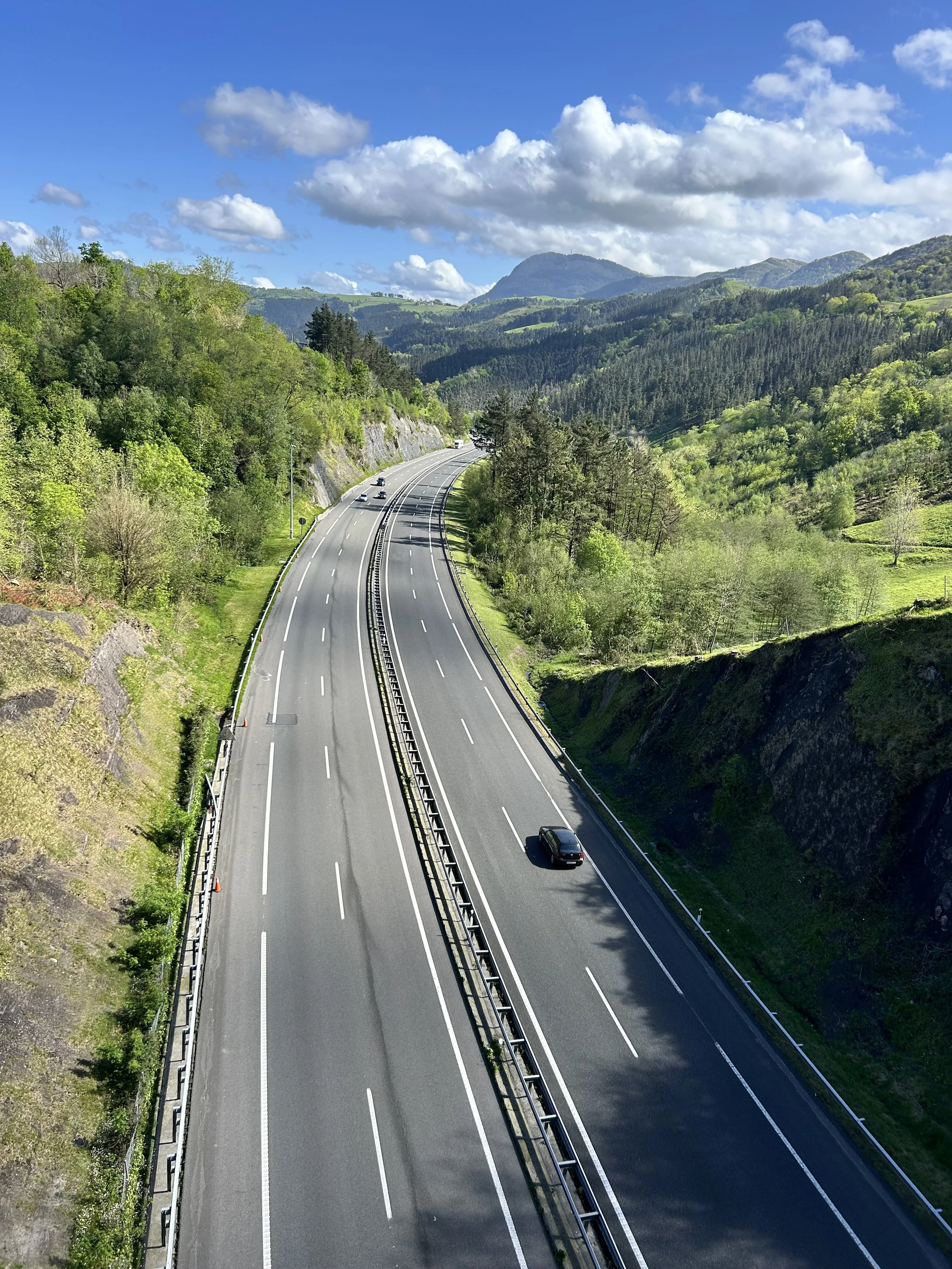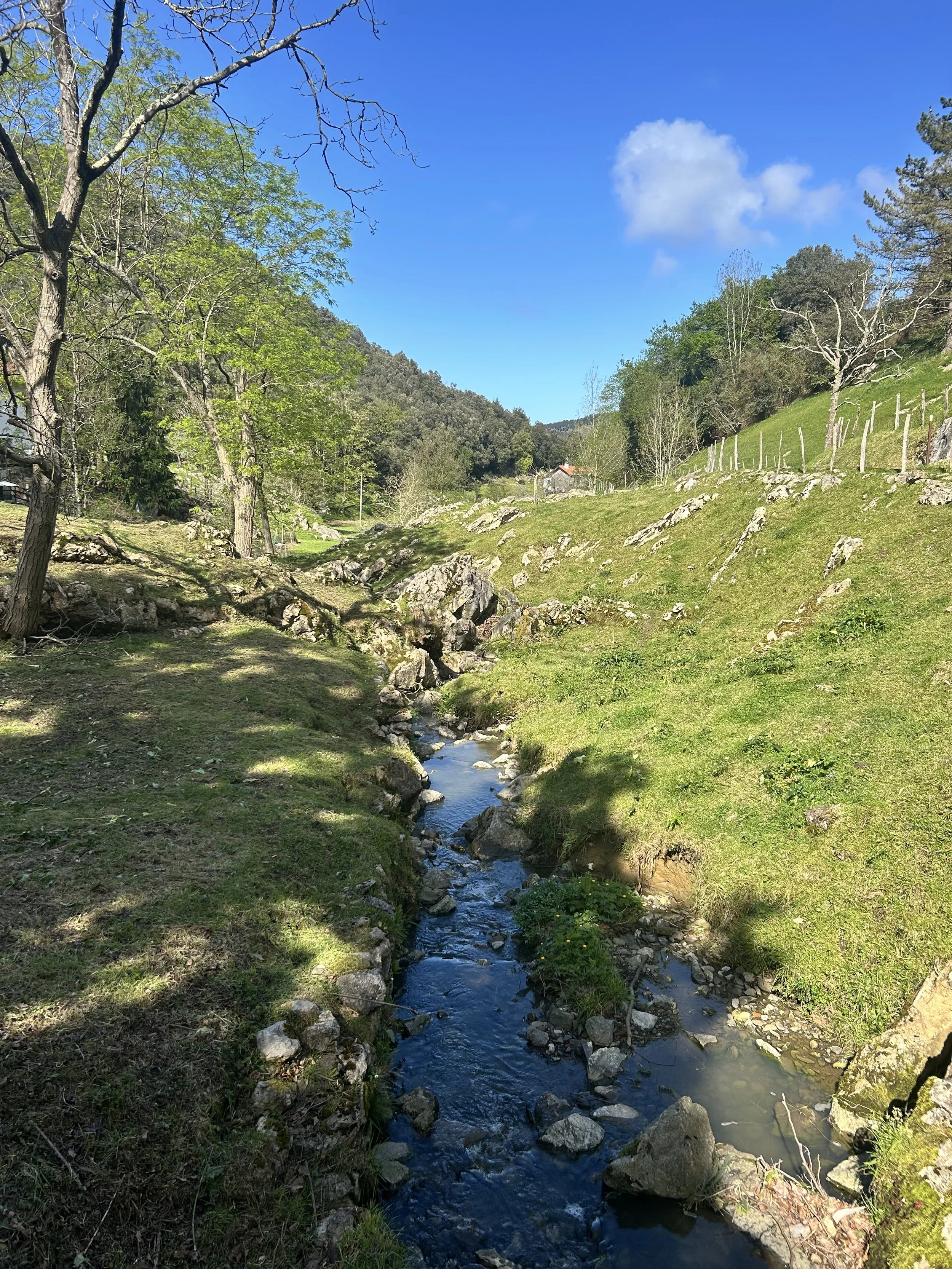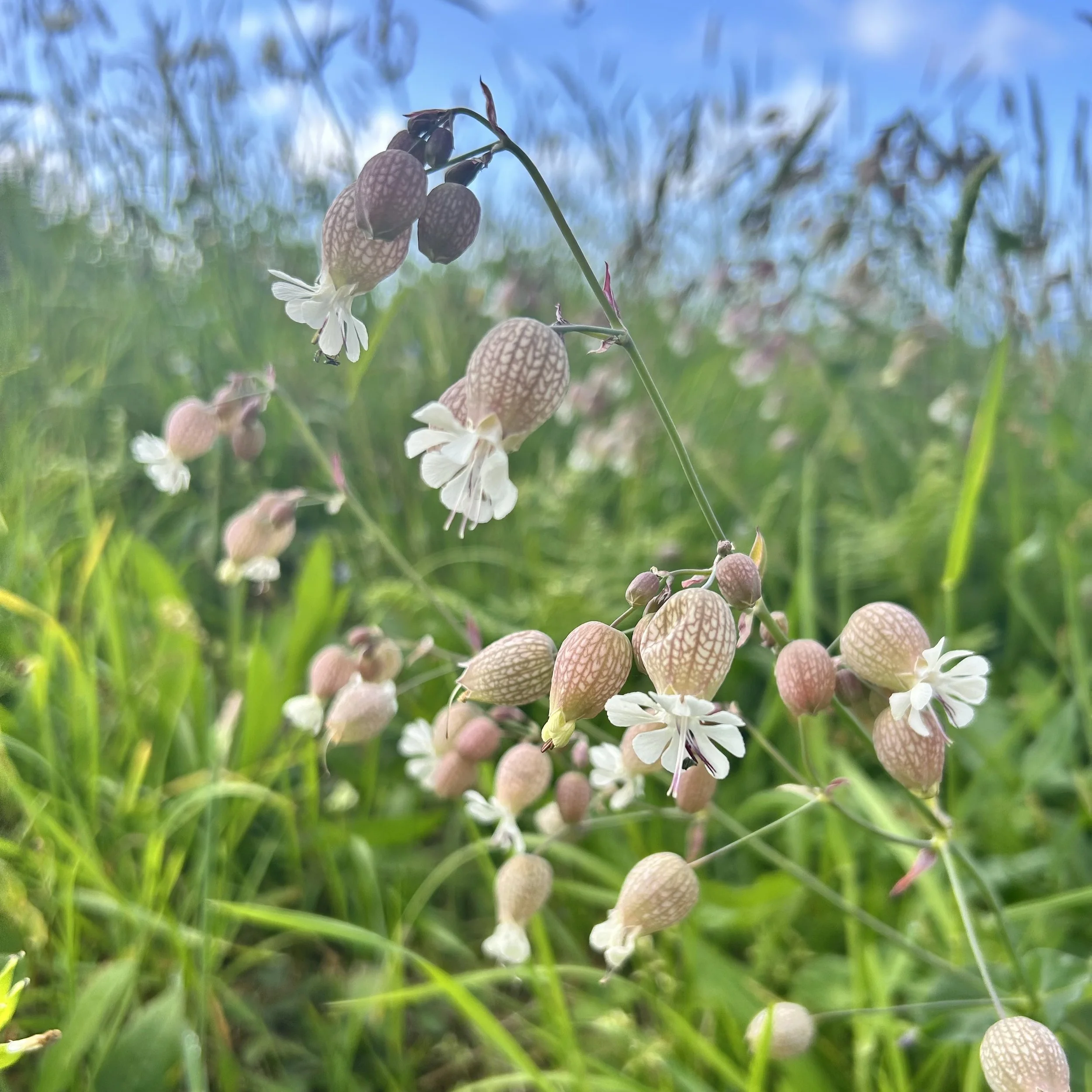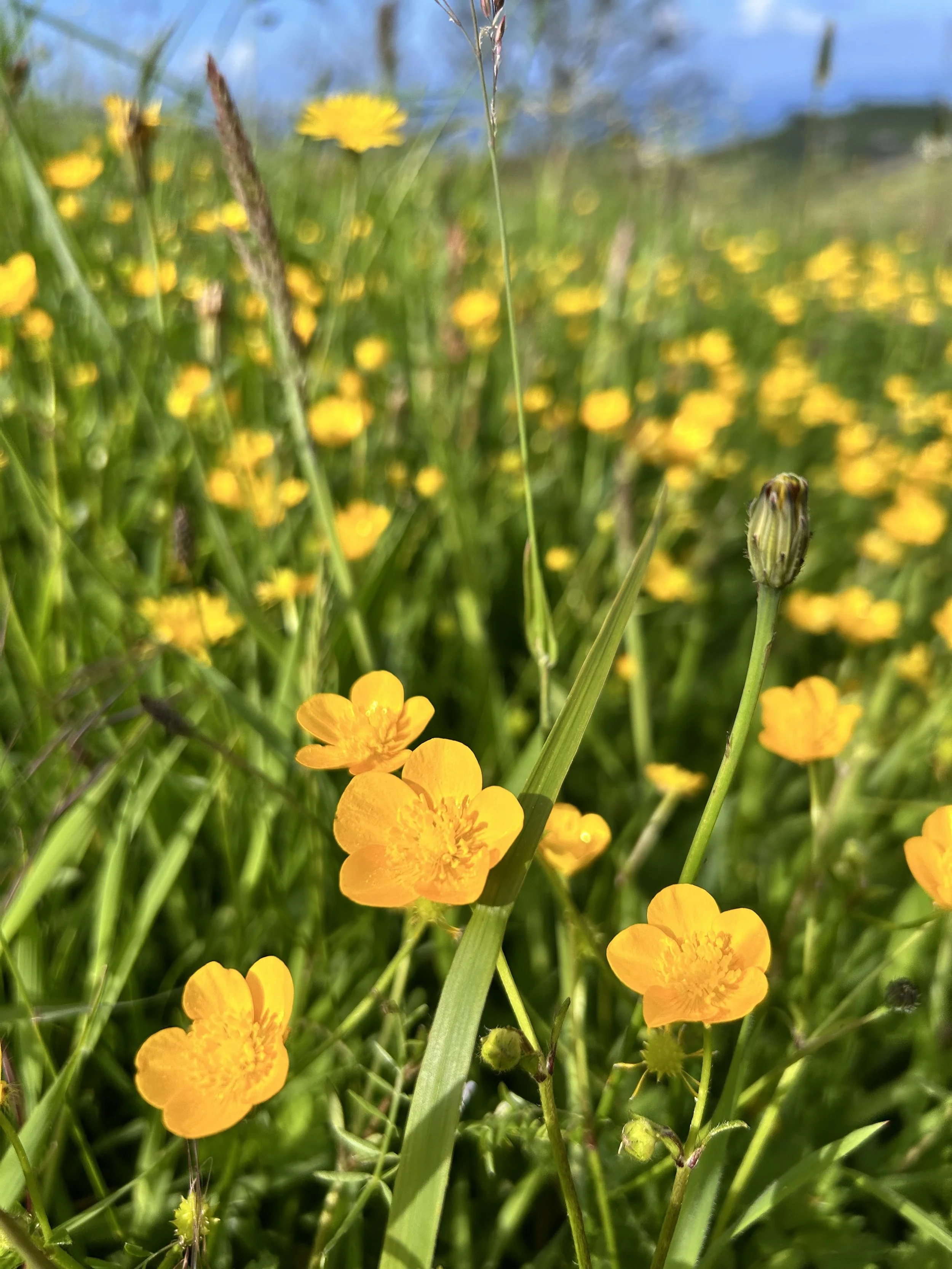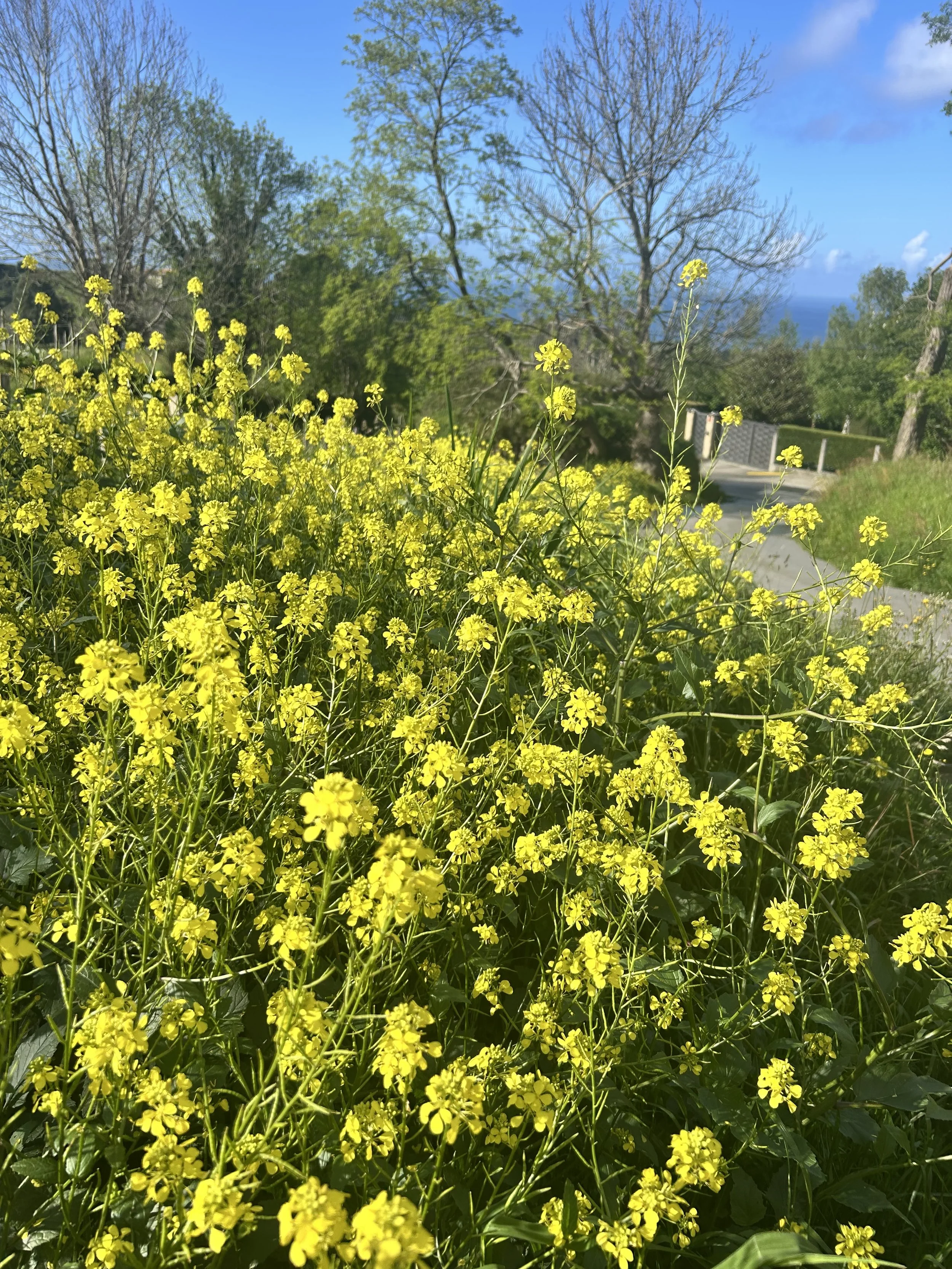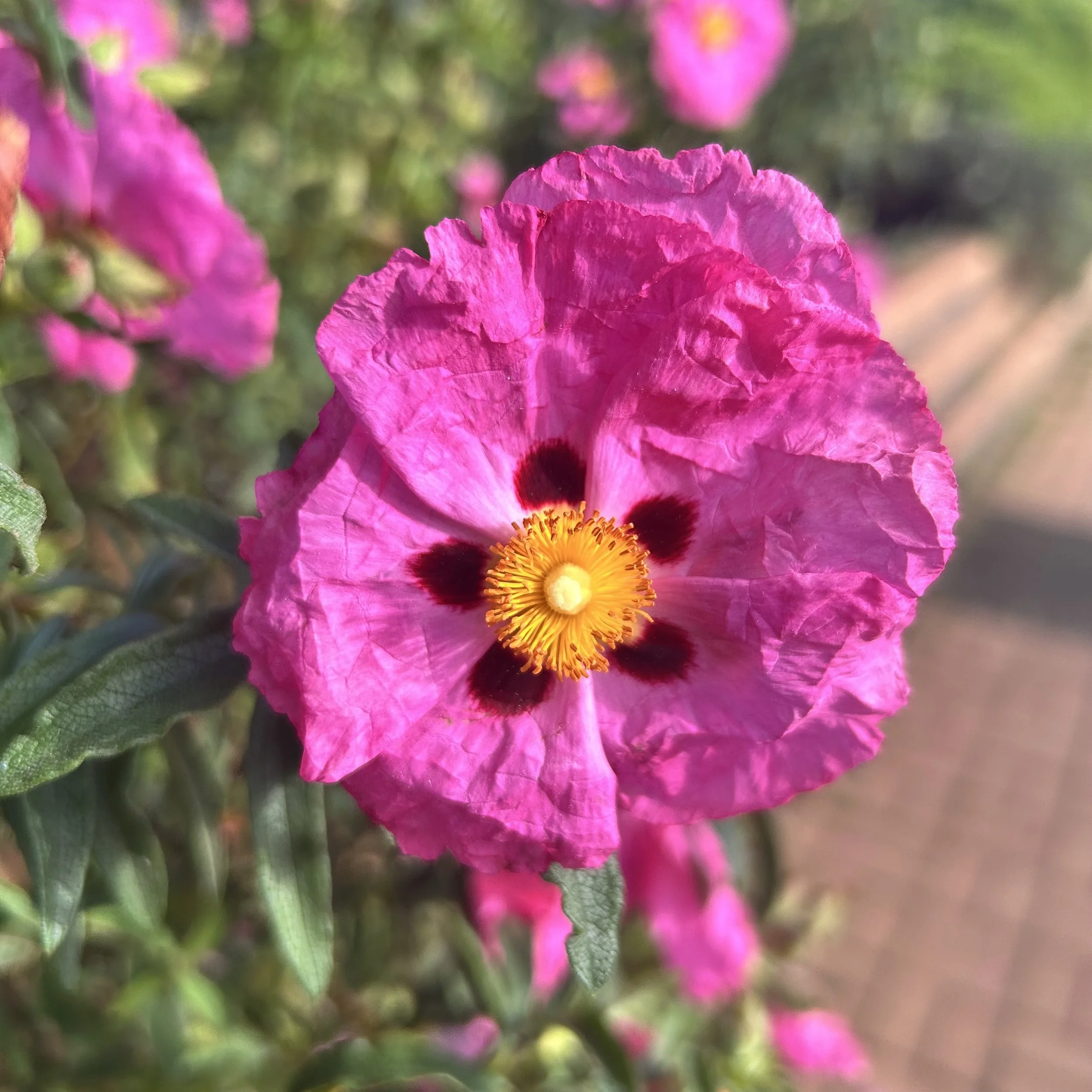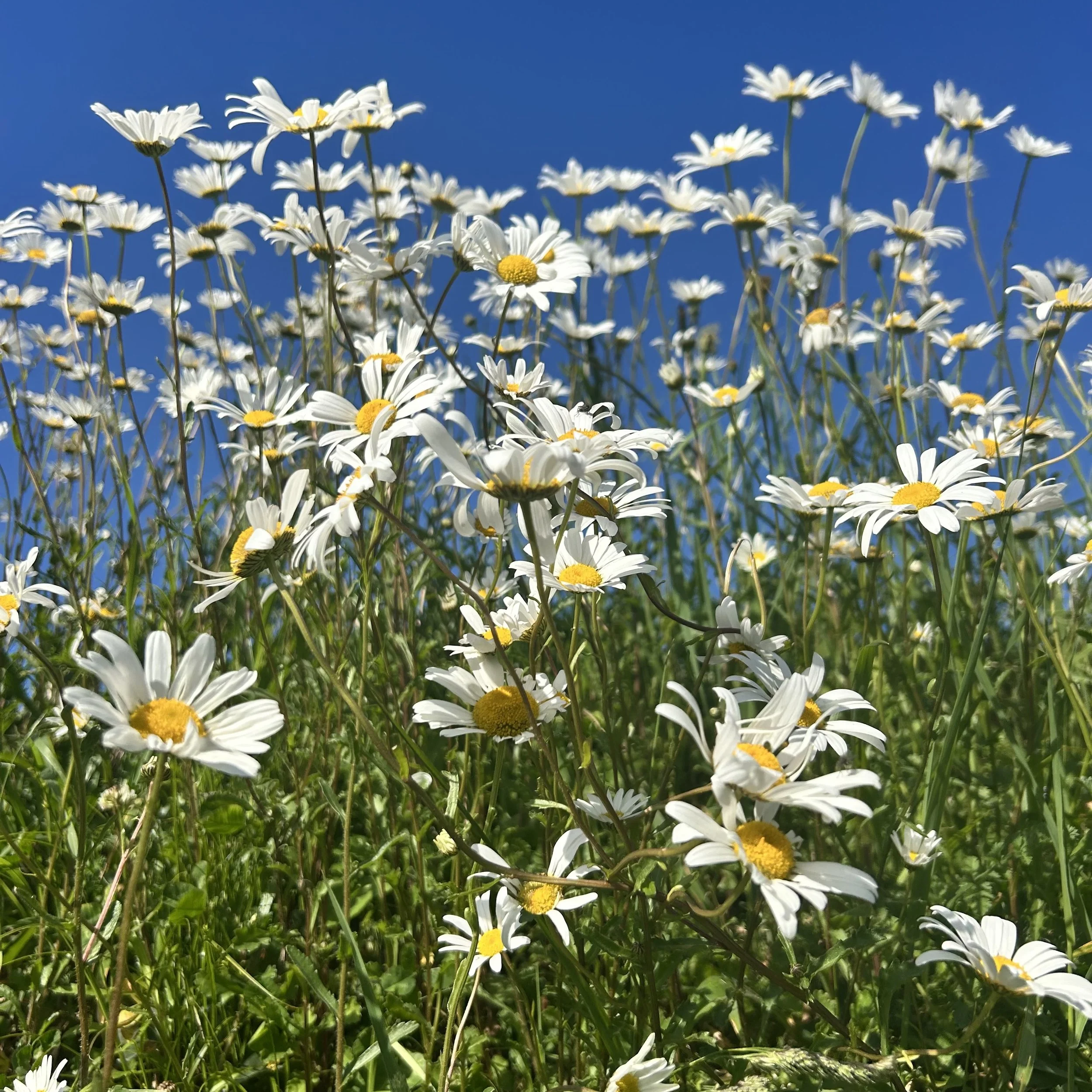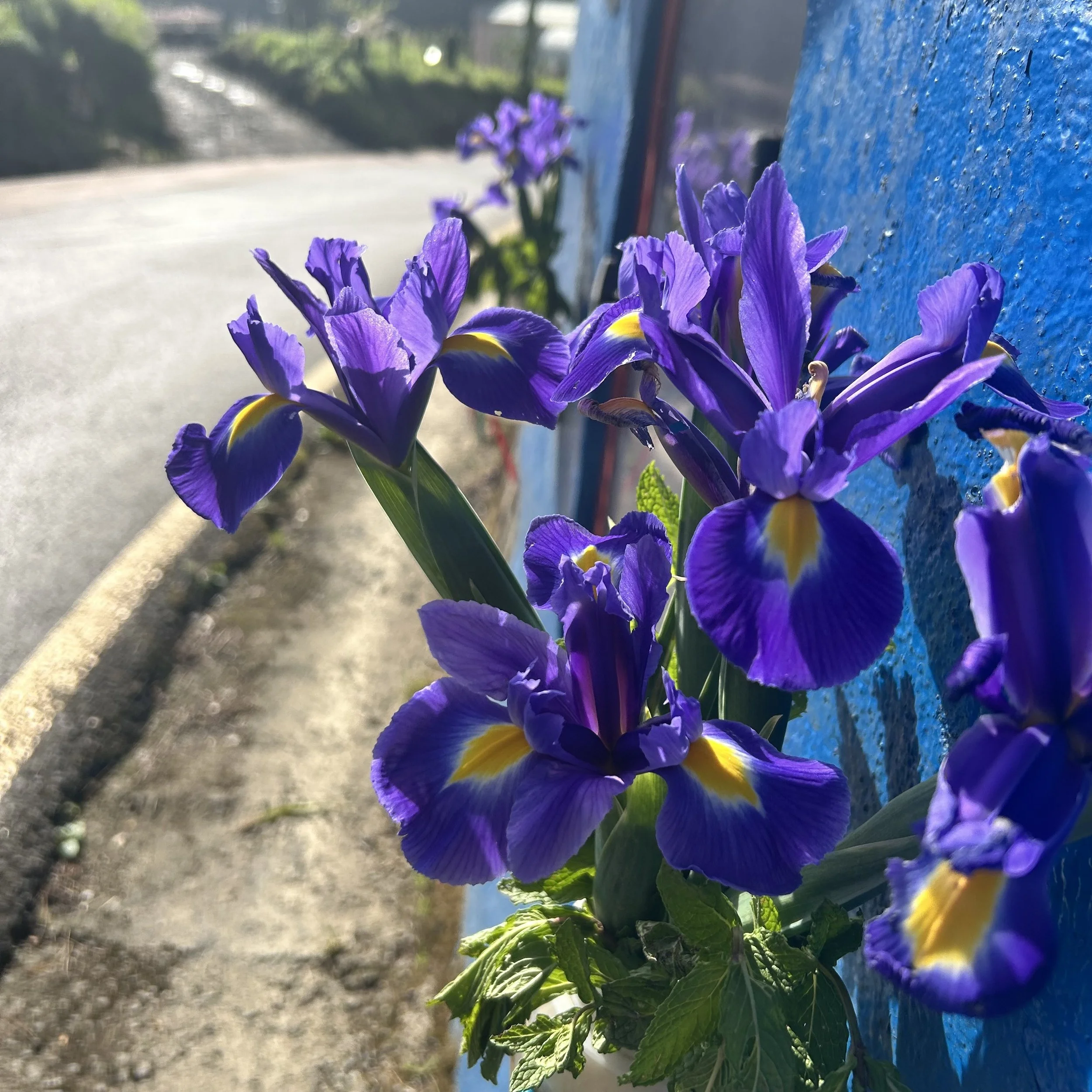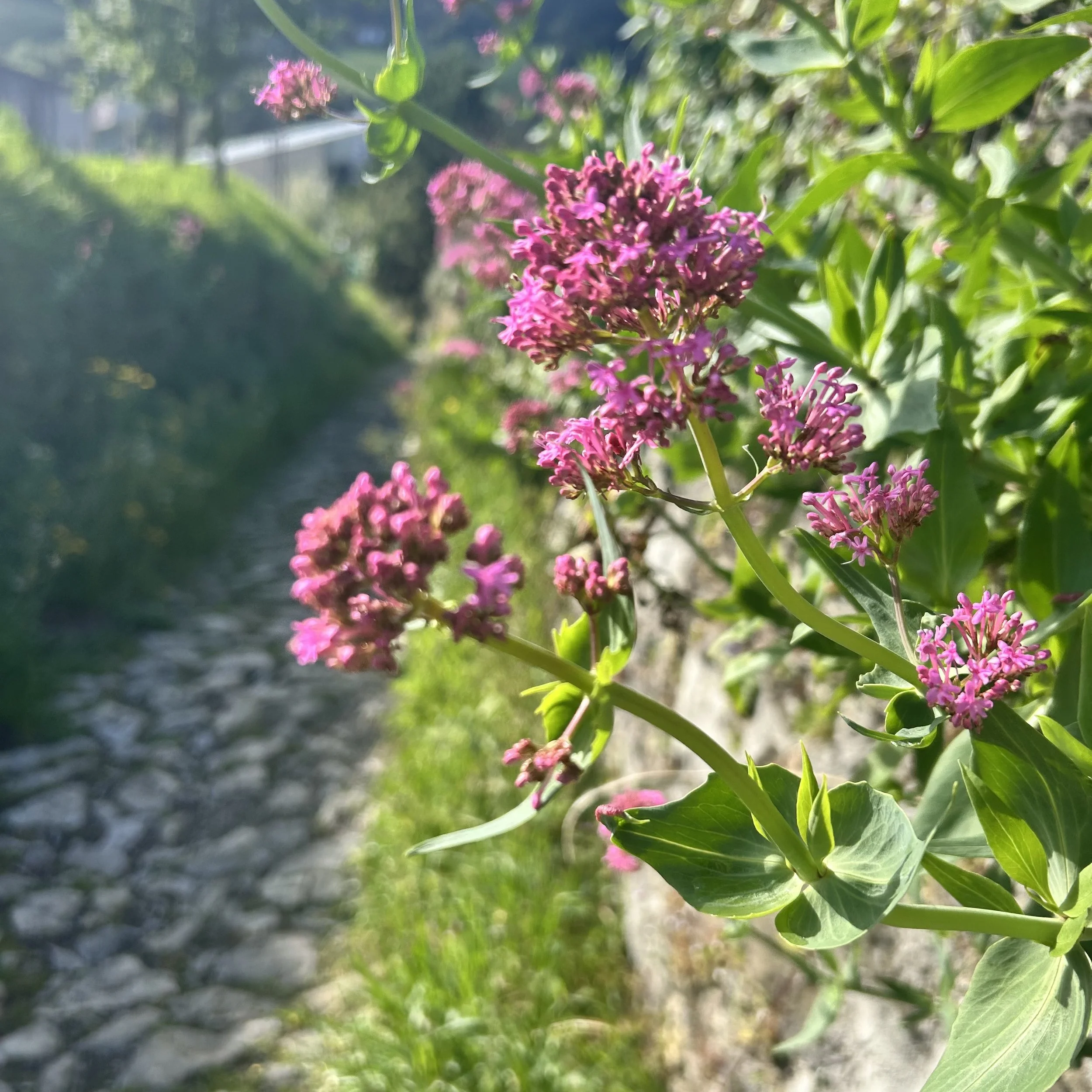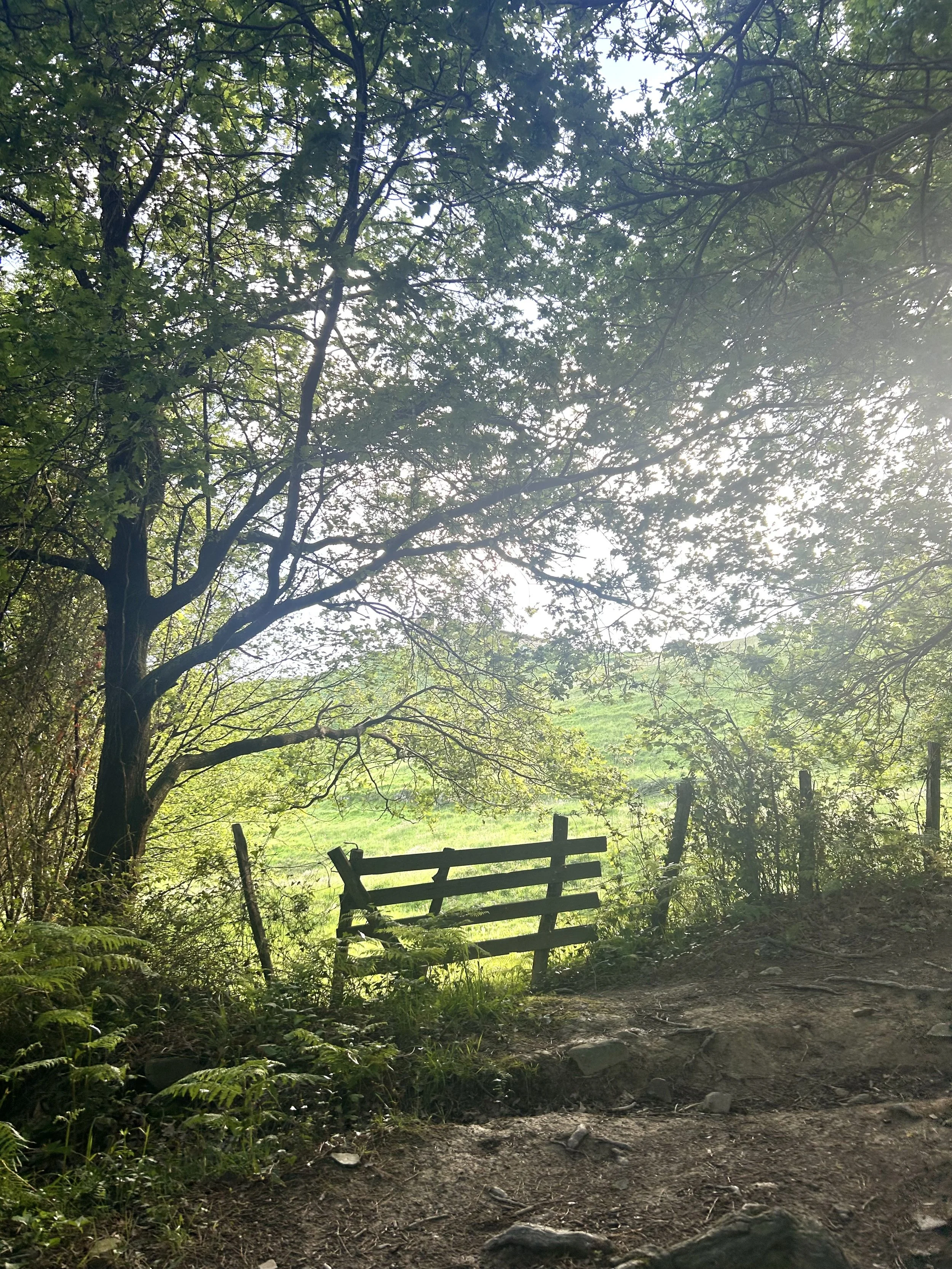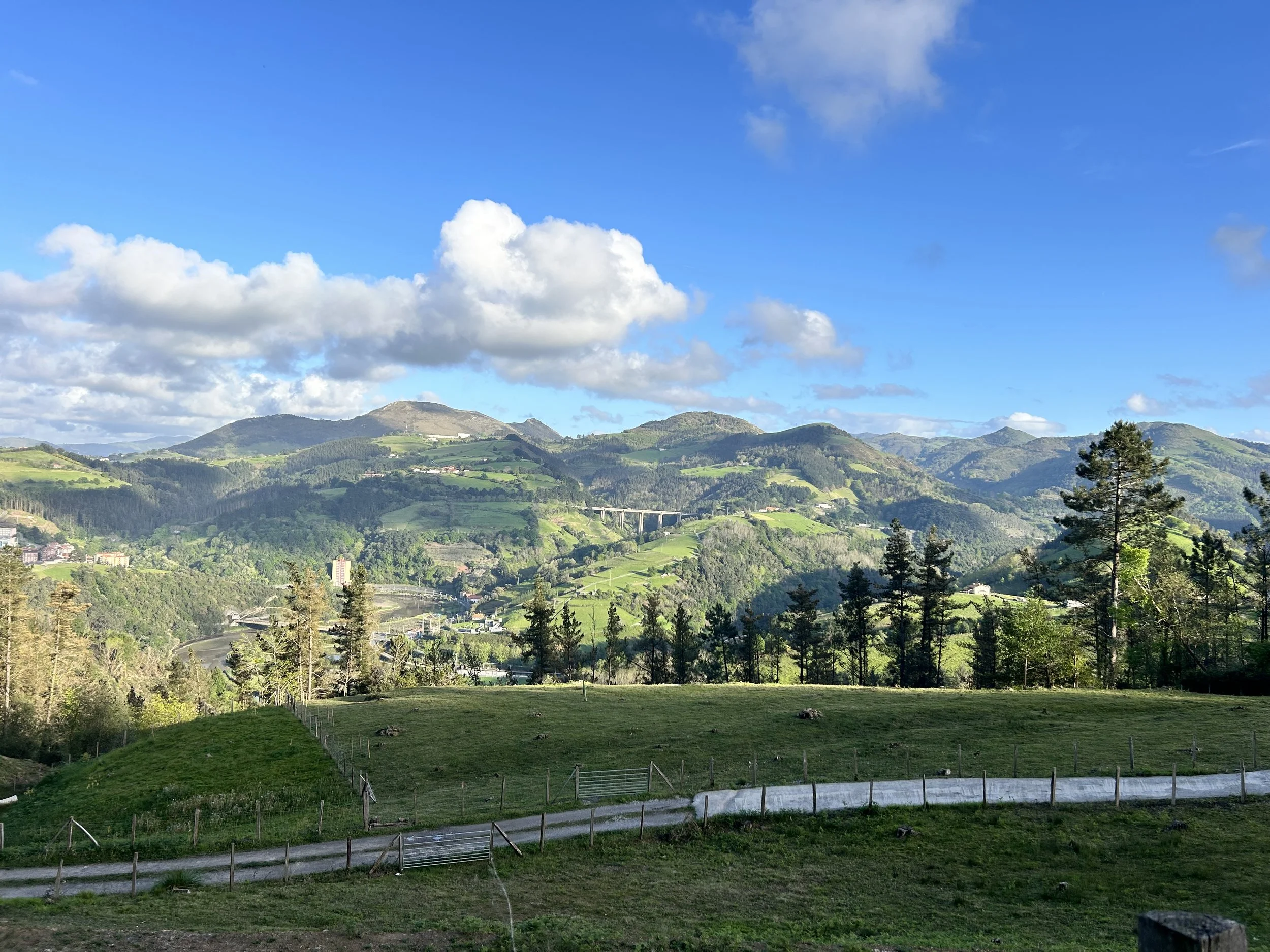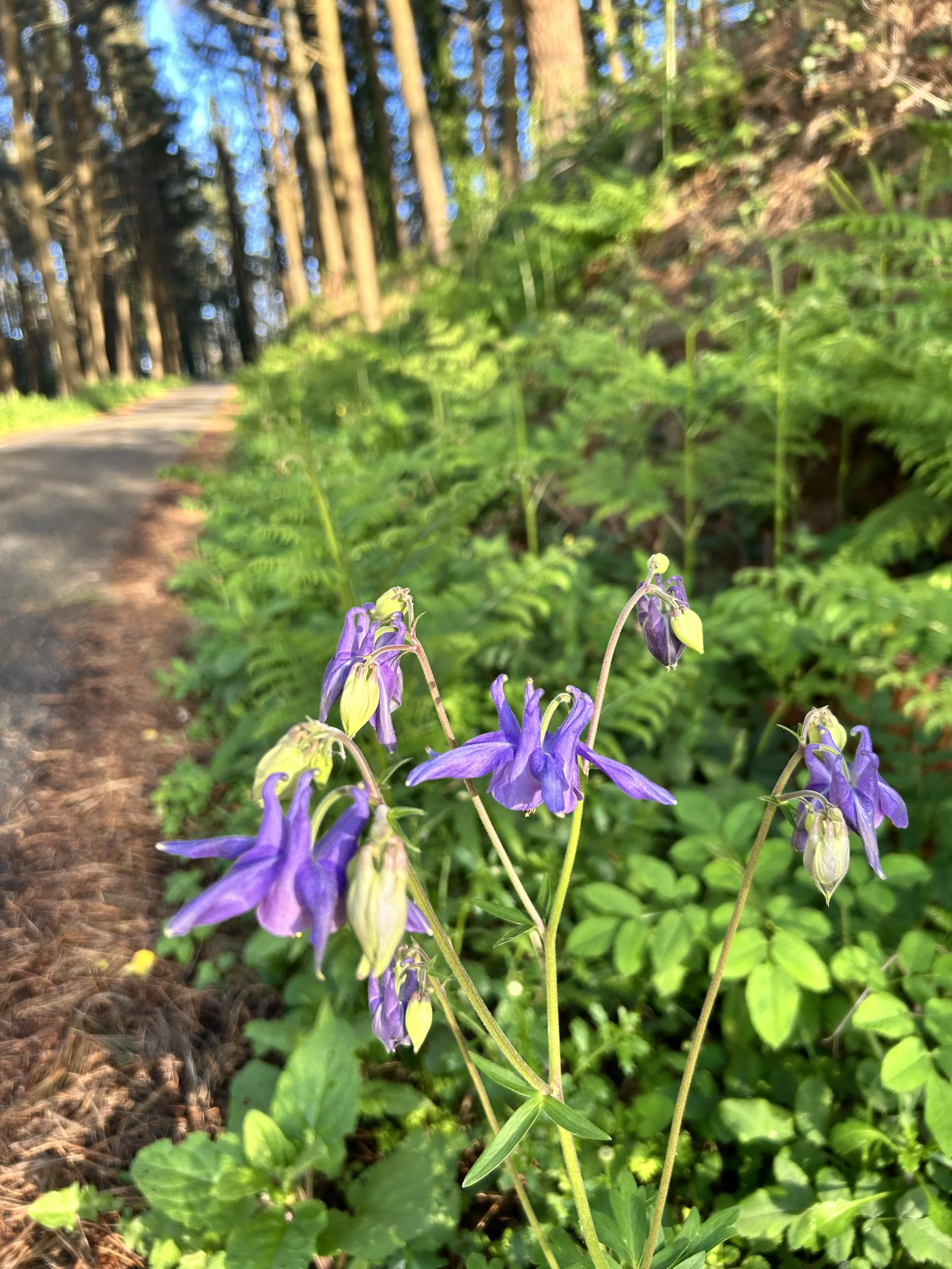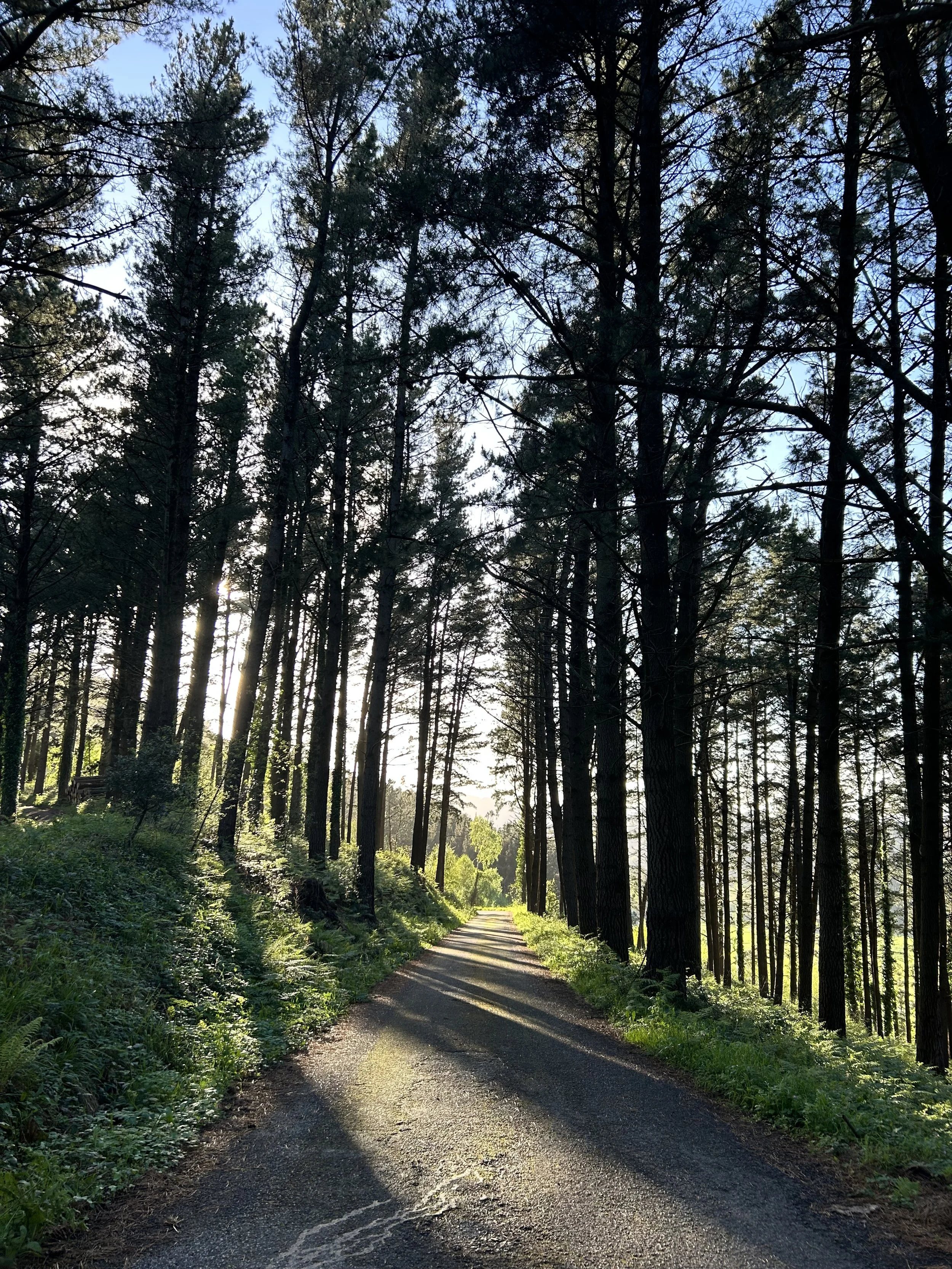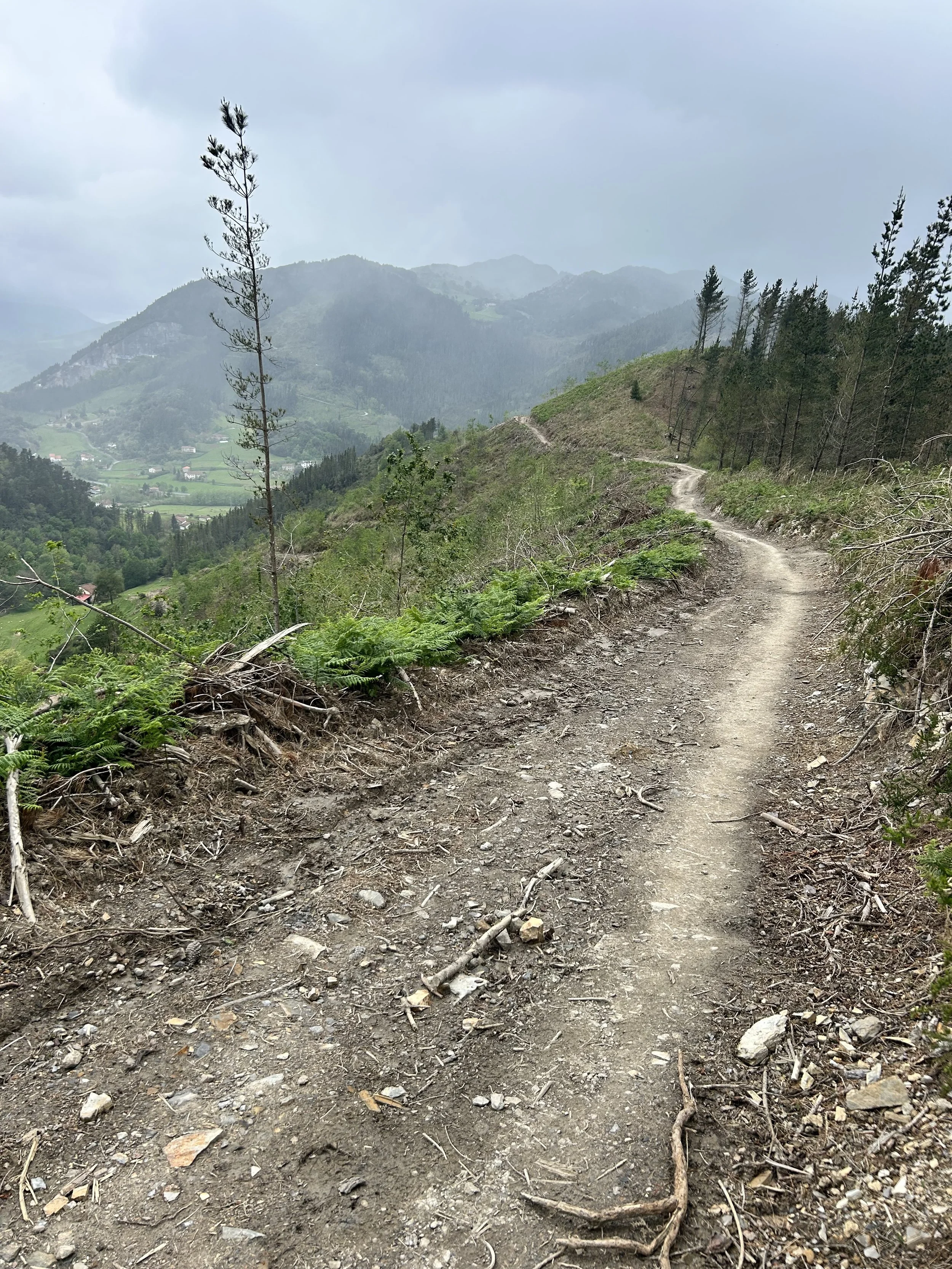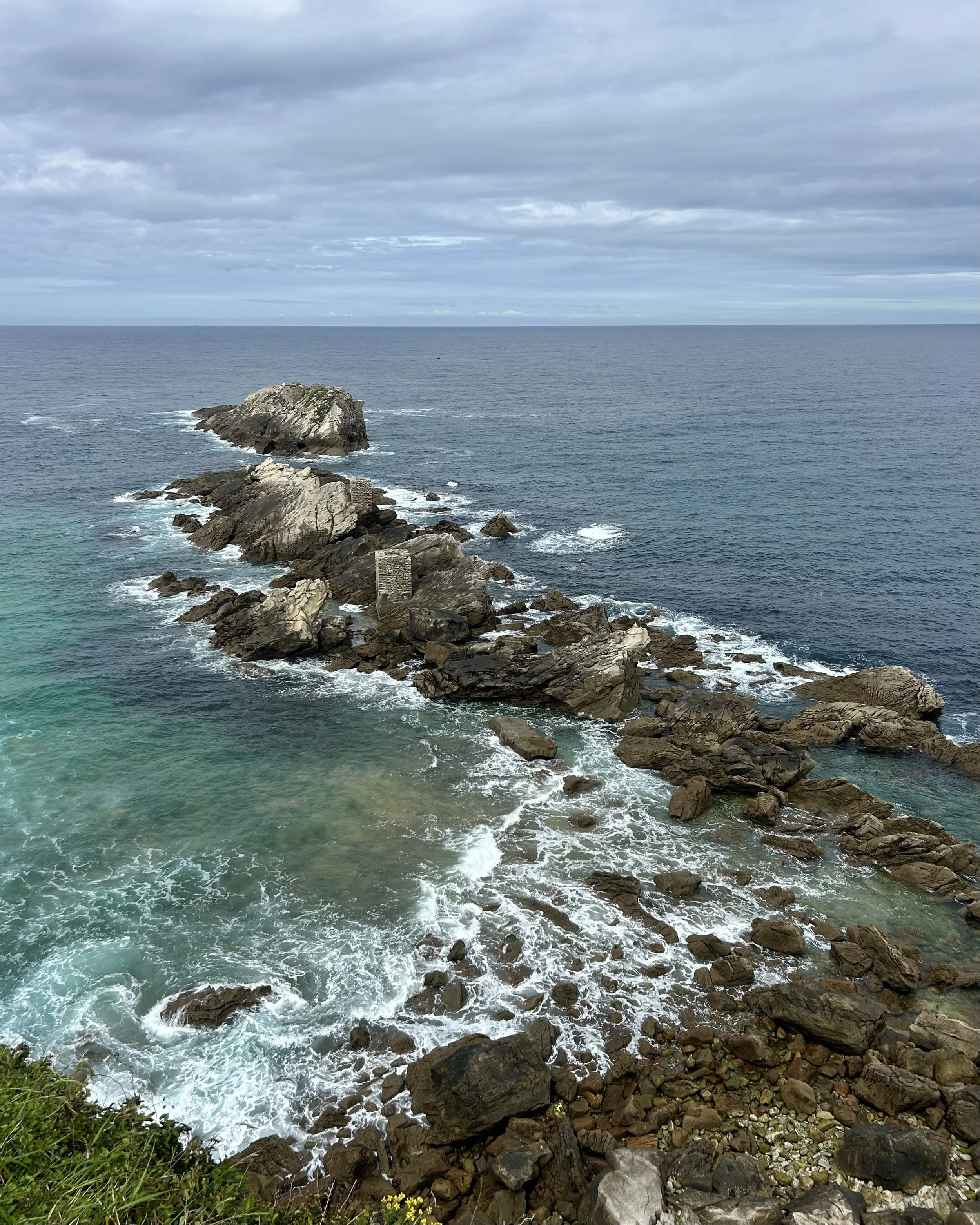Camino del Norte Day 3: Zarautz to Deba
April 22, 2025
I woke up early and found, to my dismay, that all my socks were still soaking wet from the night before. The drying rack had been brought inside and stowed in the extra water closet overnight. I could blow dry my socks, but most of the hostel was still sleeping. So, I waited in the common area and read my Bible in the pale, early light. According to my guidebook, today would be one of the most rugged and challenging days. Little did I know just how challenging it would be! Once the other pilgrims were up, I dried the socks as best I could and left the town of Zarautz.
Looking down toward the coastal town of Getaria, Basque Country
Eager steps took me up out of the town and into a hilly, coastal country of vineyards and pastures. The morning was cool and misty, and there were snails and earthworms everywhere across the trail. There were so many it was hard not to step on them!
This earthworm was over a foot long!
There were also calla lilies growing along the road in barrel planters or in huge patches in peoples’ yards. I wanted to stop and admire every single one. That has been one of the hardest things about the Camino del Norte so far: there’s so much beauty to take in every day that it’s hard to appreciate it all!
Although the first three miles to Getaria were easy enough, I already could feel my feet beginning to develop hotspots in their my wet socks. I stopped at the pharmacy in Getaria and bought compeed strips for my feet. As I walked the narrow streets of the town, I saw people carrying baguettes under their arms or in their bike baskets. I located the source of the baguettes and bought a small loaf with oats: pan de avena.
Me being crazy
Concrete steps down to a small beach
After the Camino turned inland, my feet began to protest. The trail turned to a pit of thick, reddish, four-inch mud for about a kilometer. The high grassy banks on either side of the trail offered no other alternative. Had it not been for my trekking poles, I most certainly would have slipped and fallen. The mud was like plaster; it stuck to my boots and made each step an effort. I could feel the skin on my heels beginning to rub.
In a Bad Way
After the field of mud, the path split and made a loop, and I lost my way a few times. Finally, at the top of a hill, I stopped at a bench to assess my feet. When I took off my boots, steam rose from the insoles. That’s not good, I thought. My skin, now very soft after hours inside two layers of hot, wet, Vaseline-lathered socks, was beginning to rub and blister badly. I would not be able to go on like this.
I felt exhausted and beaten as I thought of the hours of walking between me and Casa Rural Pikua, the hostel I had booked several weeks ago. Silly me! Why had I booked a month in advance? There were least ten miles to go, as well as several big ascents and descents. I sat down in the shade with my bare feet propped up to get some air and waited, thinking of what to do. An old man drove by in a red SUV and wished me a buen Camino, but it didn’t feel like a buen Camino at the moment. It felt like a mal Camino.
In the distance I noticed an elderly woman with a walker slowly making her way up the road toward me. Presently, she reached the bench beside me and sat down. The lady and I shared several moments of silence together as we looked out over the stunning Basque landscape. Finally, I ventured to break the silence:
“Vives aqui?” I asked. [Do you live here?]
She scowled and uttered something in the Basque language. It didn’t seem like she was in the mood for having a conversation, either in Spanish or otherwise. We both went back staring out at the landscape. Presently, the old man in the red SUV came back. He recognized the old lady, pulled over in the shade, and turned off his car. As he got out, a draft horse nearby pricked its ears and nickered at him. He scolded the horse for whinnying and began a lively conversation with the old woman in Basque. Perhaps this was his wife; perhaps they were just neighbors. Then he noticed my boots and angry feet.
“Tus pies son rojos,” he said in Spanish, pointing to my feet disapprovingly.
What followed was the most unsuccessful Google translate conversation I have ever had. I spoke zero Basque and he spoke zero English, so Spanish was our shaky middle ground. I tried to explain that my feet were hurting, and would he be willing to drive me a couple miles down the road in his car? I knew it was bold to ask, but he seemed safe enough, and I was beginning to feel desperate. Instead, he started telling me about his thirty chickens the thirty eggs he gets every day. Then:
“Hoy,” he said, pointing to the ground, “es mi cumplianos. Tengo ocho y cuatro anos.”
He pulled out his wallet and showed me his driver’s license. The birthdate said April 22, 1941. Today was his birthday, and he was 84 years old.
“Feliz cumpleanos!” I said. “Tomorrow is my twenty-third birthday,” in Spanish.
He broke into a huge smile, his scowl suddenly becoming sunshine.
“Feliz cumpleanos!” he said.
Basque mountain horses
Golden hour
A cathedral of trees
When I got to the hotel, the host gave me the key to an upstairs room. In the elevator, I looked at the exhausted but triumphant girl standing in the mirror in front of me. Tomorrow I would be twenty-three. Covered in mud and more than a little sunburnt, I thanked God that I had made it to my destination that night. Never have I been more grateful for a hot shower and clean sheets.


